Political Studies & Summer Courses
Study the theory and practice of politics in the heart of the nation’s capital.
Our faculty and speakers fully reflect the unusual scope and depth of our coursework and activities. Each is an accomplished, leading figure in academia, politics, journalism, or business, and together they represent a wide variety of ideological, political, and social views.
Our faculty list below includes both occasional speakers who deliver lectures and run seminars, as well as Hertog’s core faculty members.
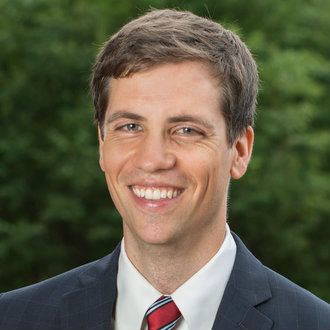
Antón Barba-Kay is Associate Professor of Philosophy in the School of Philosophy at the Catholic University of America in Washington, D.C. He is finishing a book on the political philosophy of the internet, which he began while a Visiting Fellow in the James Madison Program at Princeton University.

Political Thought & Philosophy
Antón Barba-Kay is Associate Professor of Philosophy in the School of Philosophy at the Catholic University of America in Washington, D.C. His academic work concerns 19th century continental philosophy, especially Hegel. His articles have appeared in Hegel-Studien, the Review of Metaphysics, and Journal of the History of Philosophy. In 2017-2018 he was a Visiting Fellow in the James Madison Program at Princeton University, where he began his forthcoming book on the political philosophy of the internet.
Barba-Kay received a BA from St. John’s College, a BA and MA from University of Cambridge, and an MA and PhD from the Committee on Social Thought at the University of Chicago.
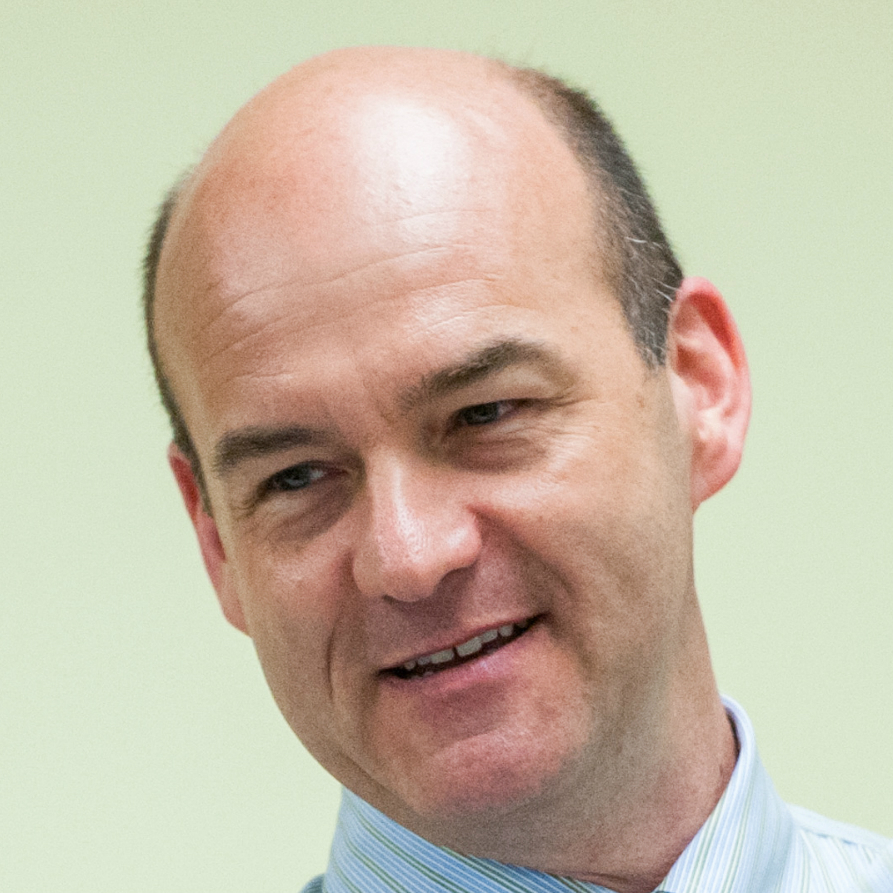
Robert C. Bartlett is the Behrakis Professor of Hellenic Political Studies at Boston College. His principal area of research is classical political philosophy, with particular attention to the thinkers of ancient Hellas, including Thucydides, Plato, and Aristotle. He is the co-translator of a new edition of Aristotle’s Nicomachean Ethics.

Political Thought & Philosophy
Robert C. Bartlett is the Behrakis Professor of Hellenic Political Studies at Boston College. His principal area of research is classical political philosophy, with particular attention to the thinkers of ancient Hellas, including Thucydides, Plato, Xenophon, and Aristotle.
He is the author or editor of eight books, including Sophistry and Political Philosophy: Protagoras’ Challenge to Socrates, The Idea of Enlightenment, Plato’s Protagoras and Meno, and Xenophon’s The Shorter Socratic Writings. He is also the co-translator of a new edition of Aristotle’s Nicomachean Ethics (University of Chicago Press, 2011). He has also published articles in the American Political Science Review, American Journal of Politics, Journal of Politics, Review of Politics, and other leading scholarly journals.
Before coming to Boston College, Robert Bartlett served as the Arthur M. Blank/National Endowment for the Humanities Distinguished Teaching Professor at Emory University. He is a graduate of the University of Toronto and holds an MA in Classics and a Ph.D. in Political Science from Boston College.
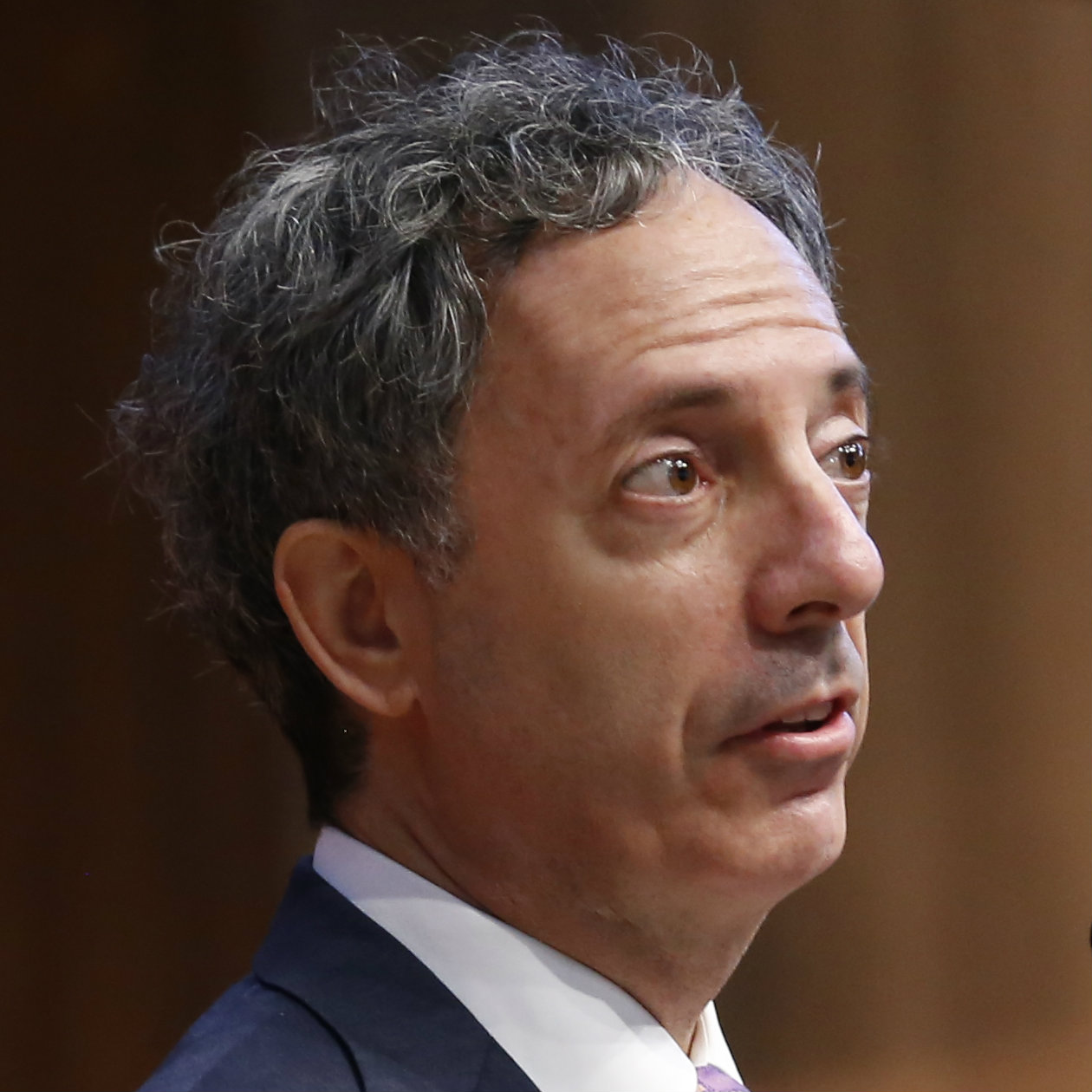
Peter Berkowitz is the Tad and Dianne Taube Senior Fellow at the Hoover Institution, Stanford University. He studies and writes about, among other things, constitutional government, conservatism and progressivism in America, liberal education, national security and law, and Middle East politics.

Political Thought & Philosophy
Peter Berkowitz is the Tad and Dianne Taube Senior Fellow at the Hoover Institution, Stanford University. He studies and writes about, among other things, constitutional government, conservatism and progressivism in America, liberal education, national security and law, and Middle East politics.
He is the author of Constitutional Conservatism: Liberty, Self-Government, and Political Moderation (Hoover Institution Press, 2013); Israel and the Struggle over the International Laws of War (Hoover Institution Press, 2012); Virtue and the Making of Modern Liberalism (Princeton University Press, 1999); and Nietzsche: The Ethics of an Immoralist (Harvard University Press, 1995).
He is the editor of seven collections of essays on political ideas and institutions published by the Hoover Institution: Renewing the American Constitutional Tradition (2014); Future Challenges in National Security and Law (2010); The Future of American Intelligence (2005); Terrorism
He taught constitutional law and jurisprudence at George Mason University School of Law from 1999 to 2006, and political philosophy in the department of government at Harvard University from 1990 to 1999. He holds a J.D. and a Ph.D. in political science from Yale University, an M.A. in philosophy from the Hebrew University of Jerusalem, and a B.A. in English literature from Swarthmore College.
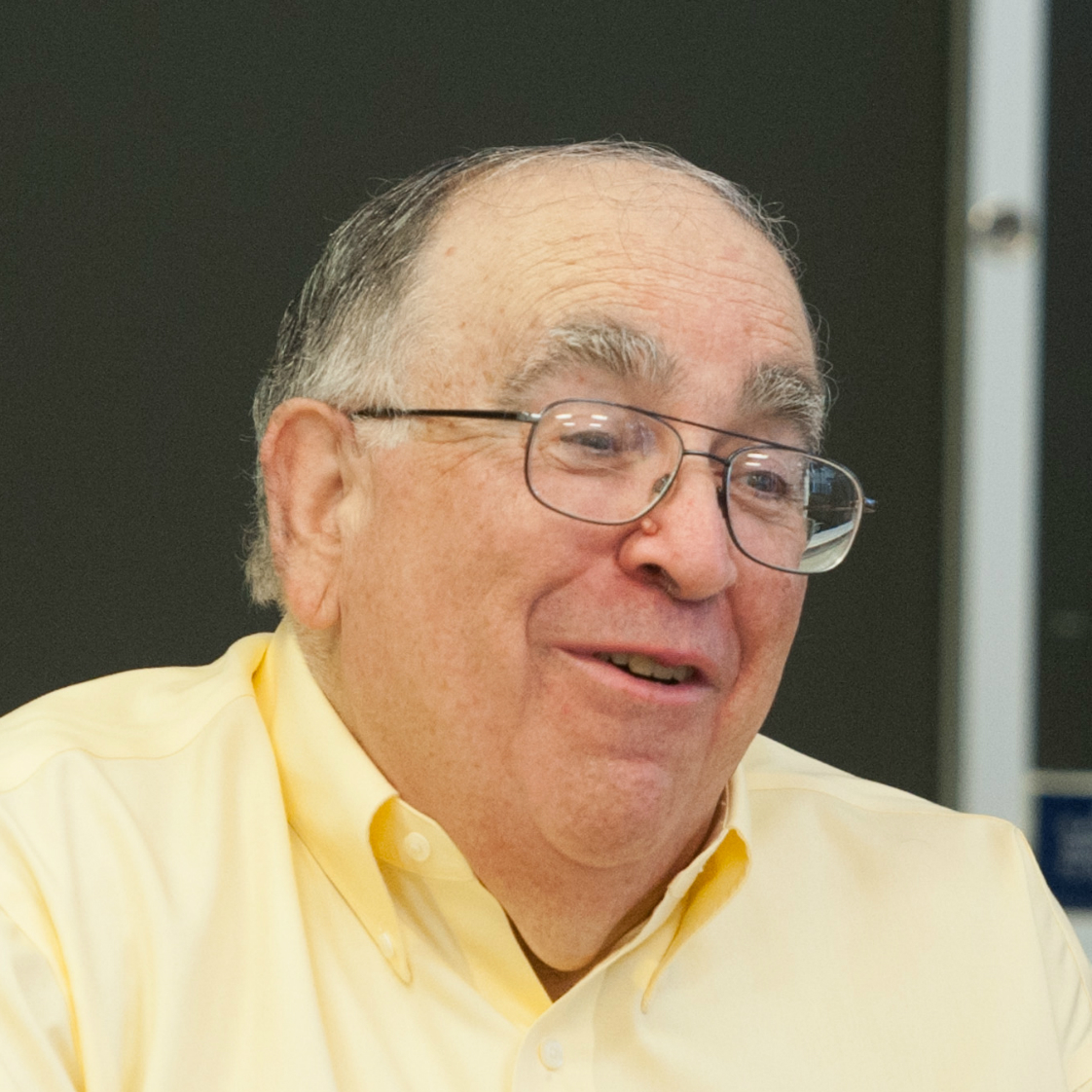
Paul Cantor is the Clifton Waller Barrett Professor of English and Comparative Literature at the University of Virginia. He has written on a wide range of subjects, including Shakespeare, Romanticism, Austrian economics, and contemporary popular culture.

Political Thought & Philosophy
Paul A. Cantor is Clifton Waller Barrett Professor of English and Comparative Literature at the University of Virginia, where he has taught since 1977.
From 1992 to 1999, Cantor served on the National Council on the Humanities, the governing board of the National Endowment for the Humanities. He has published extensively on Shakespeare, including his books Shakespeare’s Roman Trilogy (University of Chicago Press, 2017), Shakespeare’s Rome: Republic and Empire (Cornell, 1976), and the Hamlet volume in the Cambridge Landmarks of World Literature series (Cambridge University Press, 1989, 2004). He has also published essays on The Merchant of Venice, Henry V, As You Like It, Hamlet, Othello, Macbeth, King Lear, Timon of Athens, Antony and Cleopatra, and The Tempest, as well as on general issues of Shakespeare criticism.
In addition to Shakespeare, he has written about other English Renaissance dramatists, including Christopher Marlowe, Ben Jonson, Cyril Tourneur, and John Ford. Among the other fields he has worked in are British Romantic literature and American popular culture. His book Gilligan Unbound: Pop Culture in the Age of Globalization (Rowman & Littlefield, 2001) was named one of the best nonfiction books of 2001 by the Los Angeles Times. In the Fall of 2007 and 2012, Cantor was a Visiting Professor of Government at Harvard and taught a course on Shakespeare and Politics, which he also taught in the Spring of 2015.
Cantor received his BA in 1966 and his Ph.D. in 1971 from Harvard University, where he was an assistant professor of English from 1971 to 1977.
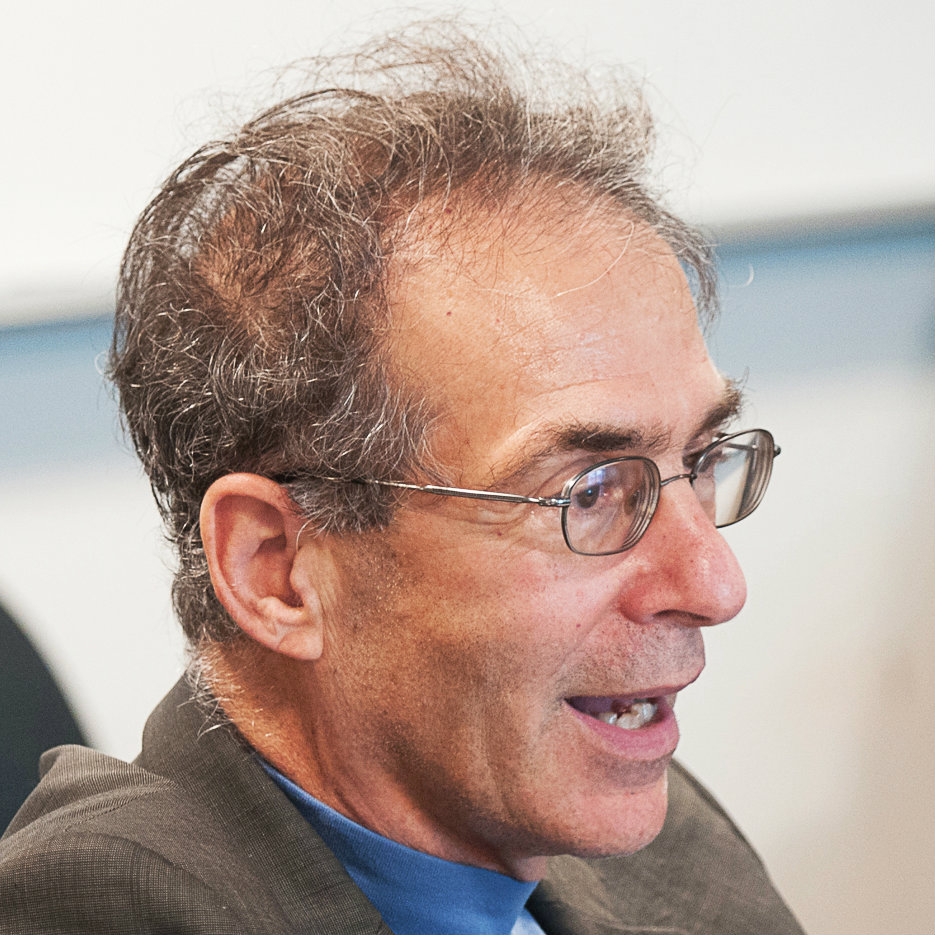
James W. Ceaser is Harry F. Byrd Professor of Politics at the University of Virginia, where he has taught since 1976, and a senior fellow at the Hoover Institution. He has written several books on American politics and political thought, including Presidential Selection and Liberal Democracy and Political Science.

Political Thought & Philosophy
James W. Ceaser is Harry F. Byrd Professor of Politics at the University of Virginia, where he has taught since 1976, and a senior fellow at the Hoover Institution. He has written several books on American politics and political thought, including Presidential Selection, Liberal Democracy and Political Science, Reconstructing America, and Nature and History in American Political Development. He has also coauthored a series on American national elections since 1992, the most recent of which is entitled After Hope and Change: The 2012 Elections and American Politics.
Professor Ceaser has been a Fulbright teacher at the University of Florence and the University of Basel. He has held visiting professorships at Oxford University, the University of Bordeaux, Harvard University, Princeton University, and the University of Rennes. Professor Ceaser is a presidential appointee to the National Historical Publications and Records Commission. He is a frequent contributor to the popular press, and he often comments on American politics for Voice of America.
Professor Ceaser received his doctorate from Harvard University in the field of American politics.
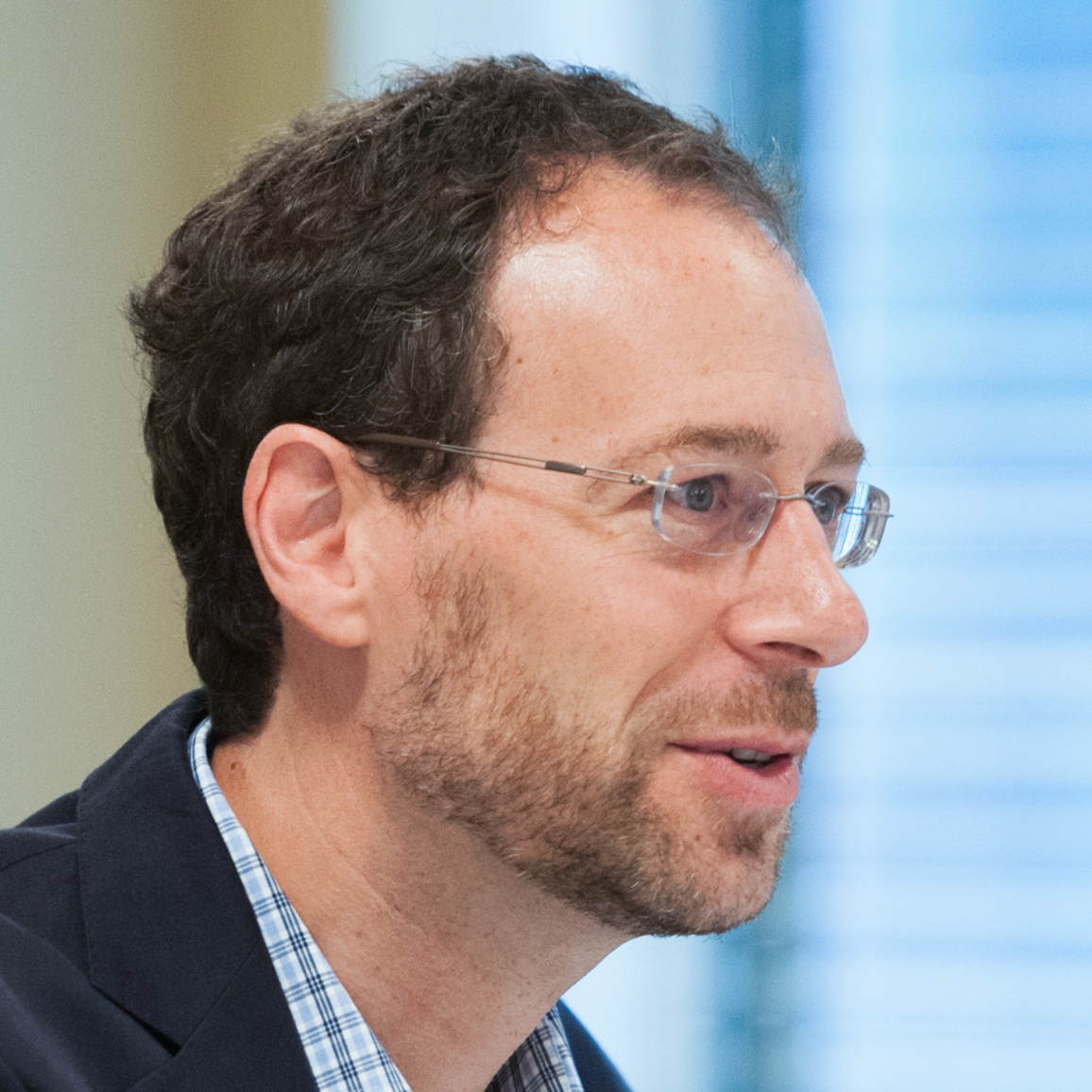
Bryan Garsten is Professor of Political Science at Yale University. He writes on questions about political rhetoric and deliberation, the meaning of representative government, the relationship of politics and religion, and the place of emotions in political life.

Political Thought & Philosophy
Bryan Garsten is Professor of Political Science and Chair of the Humanities Program at Yale University. He is the author of Saving Persuasion: A Defense of Rhetoric and Judgment (Harvard University Press, 2006), as well as articles and essays on questions about political rhetoric and deliberation, the meaning of representative government, the relationship of politics and religion, and the place of emotions in political life.
He is finishing a book called The Heart of a Heartless World that examines the ethical, political and religious core of early nineteenth-century liberalism in the United States and France. He has also edited Rousseau, the Age of Enlightenment, and Their Legacies (Princeton University Press, 2012), a collection of essays by the Rousseau scholar Robert Wokler. His writings have won various awards, including the First Book Prize of the Foundations of Political Theory section of the American Political Science Association.
He has served as Director of Undergraduate Studies for Yale’s major in Ethics, Politics and Economics and the Director of Graduate Studies for the Department of Political Science. In 2016 he founded the Citizens, Thinkers, Writers program for students in the New Haven public schools.
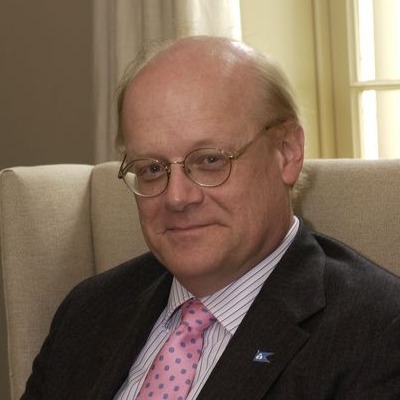
Dr. Allen C. Guelzo is the Henry R. Luce Professor of the Civil War Era, and Director of Civil War Era Studies at Gettysburg College. He is the author of Abraham Lincoln: Redeemer President, which won the Lincoln Prize for 2000.

Political Thought & Philosophy
Dr. Allen C. Guelzo is the Henry R. Luce Professor of the Civil War Era, and Director of Civil War Era Studies at Gettysburg College.
He is the author of Abraham Lincoln: Redeemer President, which won the Lincoln Prize for 2000, Lincoln’s Emancipation Proclamation: The End of Slavery in America, which won the Lincoln Prize for 2005, and Lincoln and Douglas: The Debates That Defined America, which won the Abraham Lincoln Institute Prize for 2008. His most recent work in Lincoln is Abraham Lincoln as A Man of Ideas (a collection of essays published in 2009 by Southern Illinois University Press) and Lincoln, a volume in Oxford University Press’s ‘Very Short Introductions’ series (also 2009). His book on the battle of Gettysburg, Gettysburg: The Last Invasion (Knopf, 2013) spent eight weeks on the New York Times best-seller list.
He is a member of the American Historical Association, the Organization of American Historians, the Society for Historians of the Early American Republic, the Society of Civil War Historians, and the Union League of Philadelphia. In September, 2005, he was nominated by President Bush to the National Council on the Humanities, and in December, was awarded the Medal of Honor of the National Society of the Daughters of the American Revolution.
He has been a fellow of the American Council of Learned Societies (1991-92), the McNeil Center for Early American Studies at the University of Pennsylvania (1992-93), the Charles Warren Center for American Studies at Harvard University (1994-95) and the James Madison Program in American Ideals and Institutions at Princeton University (2002-03, 2010-11). He is a Non-Resident Fellow of the W.E.B. DuBois Institute at Harvard University and a Research Scholar at the McNeil Center for Early American Studies at the University of Pennsylvania.

Ryan Patrick Hanley is Professor of Political Science at Boston College. His research in the history of political philosophy focuses on the Enlightenment. He is the author of Our Great Purpose: Adam Smith on Living a Better Life and Love’s Enlightenment: Rethinking Charity in Modernity.

Political Thought & Philosophy
Ryan Patrick Hanley is Professor of Political Science at Boston College. Previously, he was the Mellon Distinguished Professor of Political Science at Marquette University. His research in the history of political philosophy focuses on the Enlightenment.
He is the author of Our Great Purpose: Adam Smith on Living a Better Life (Princeton University Press, 2019), Love’s Enlightenment: Rethinking Charity in Modernity (Cambridge University Press, 2016), and Adam Smith and the Character of Virtue (Cambridge University Press, 2009). His edited volumes include Adam Smith: His Life, Thought, and Legacy (Princeton University Press, 2016), the Penguin Classics edition of Adam Smith’s Theory of Moral Sentiments (Penguin, 2010), and with Darrin M. McMahon, The Enlightenment: Critical Concepts in History, 5 vols. (Routledge, 2010).
His articles have appeared or are forthcoming in American Political Science Review, American Journal of Political Science, Journal of Politics, European Journal of Political Theory, Review of Politics, Social Philosophy & Policy, History of Political Thought, Journal of the History of Philosophy, Revue internationale de philosophie, and Archiv für Geschichte der Philosophie.
Professor Hanley received his B.A. from the University of Pennsylvania, his M.Phil. from Cambridge University, and his Ph.D. from the Committee on Social Thought at the University of Chicago. Prior to Marquette, he was a Mellon Postdoctoral Fellow at Yale University’s Whitney Humanities Center.
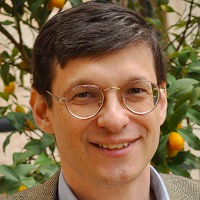
Yoram Hazony is an Israeli philosopher, Bible scholar, and political theorist. He is President of the Herzl Institute in Jerusalem, and Director of the John Templeton Foundation’s project in Jewish Philosophical Theology. His books include The Virtue of Nationalism and The Philosophy of Hebrew Scripture.

Political Thought & Philosophy
Yoram Hazony is an Israeli philosopher, Bible scholar, and political theorist. He is President of the Herzl Institute in Jerusalem, and Director of the John Templeton Foundation’s project in Jewish Philosophical Theology.
He is founder and past President of the Shalem Center in Jerusalem, now Shalem College. His books include The Virtue of Nationalism, The Philosophy of Hebrew Scripture, The Jewish State: The Struggle for Israel’s Soul, and God and Politics in Esther. His work has appeared in publications such as The Wall Street Journal, The New York Times, NPR, The New Republic, Commentary, First Things, and American Affairs, among others.
Earlier he founded and headed the Shalem Center, a Jerusalem research institute that conducted nearly two decades of pioneering work in the fields of philosophy, political theory, Bible, Talmud, Jewish and Zionist history, Middle East Studies and archaeology beginning in 1994. The Center’s publishing arm, Shalem Press, became Israel’s leading publisher of Western philosophy translated into Hebrew, and published Azure magazine. In 2013, Shalem was accredited to grant Israel’s first Liberal Arts B.A., and formally became Shalem College. Hazony served as President of Shalem from 1994-2002, and as Provost from 2005-2012. He also served as a member of the Israel Council for Higher Education’s commission on General Studies and Liberal Arts programs in Israel’s universities and colleges.
Hazony was born in Rehovot, Israel and graduated from Princeton University with a B.A. in East Asian Studies in 1986, and completed his Ph.D. at Rutgers University in Political Theory in 1993. He lives in Jerusalem with his wife Yael Hazony.
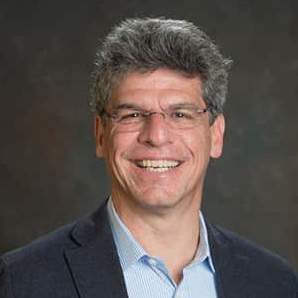
Jacob Howland is a Senior Fellow at the Tikvah Fund. His research focuses on ancient Greek philosophy, history, epic, and tragedy; the Hebrew Bible and the Talmud; Kierkegaard; and literary and philosophical responses to the Holocaust and Soviet totalitarianism. His most recent book is Glaucon’s Fate: History, Myth, and Character in Plato’s Republic.

Political Thought & Philosophy
Jacob Howland is a Senior Fellow at the Tikvah Fund, prior to which he was the McFarlin Professor of Philosophy (emeritus) at the University of Tulsa. His research focuses on ancient Greek philosophy, history, epic, and tragedy; the Hebrew Bible and the Talmud; Kierkegaard; and literary and philosophical responses to the Holocaust and Soviet totalitarianism. His most recent book is Glaucon’s Fate: History, Myth, and Character in Plato’s Republic. His other books include Plato and the Talmud and Kierkegaard and Socrates: A Study in Philosophy and Faith. He earned a B.A. from Swarthmore College and a Ph.D. from Penn State.
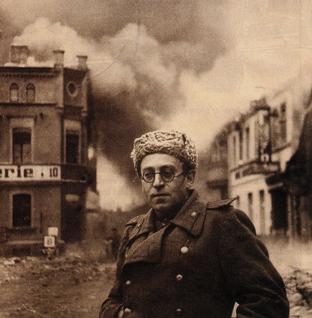
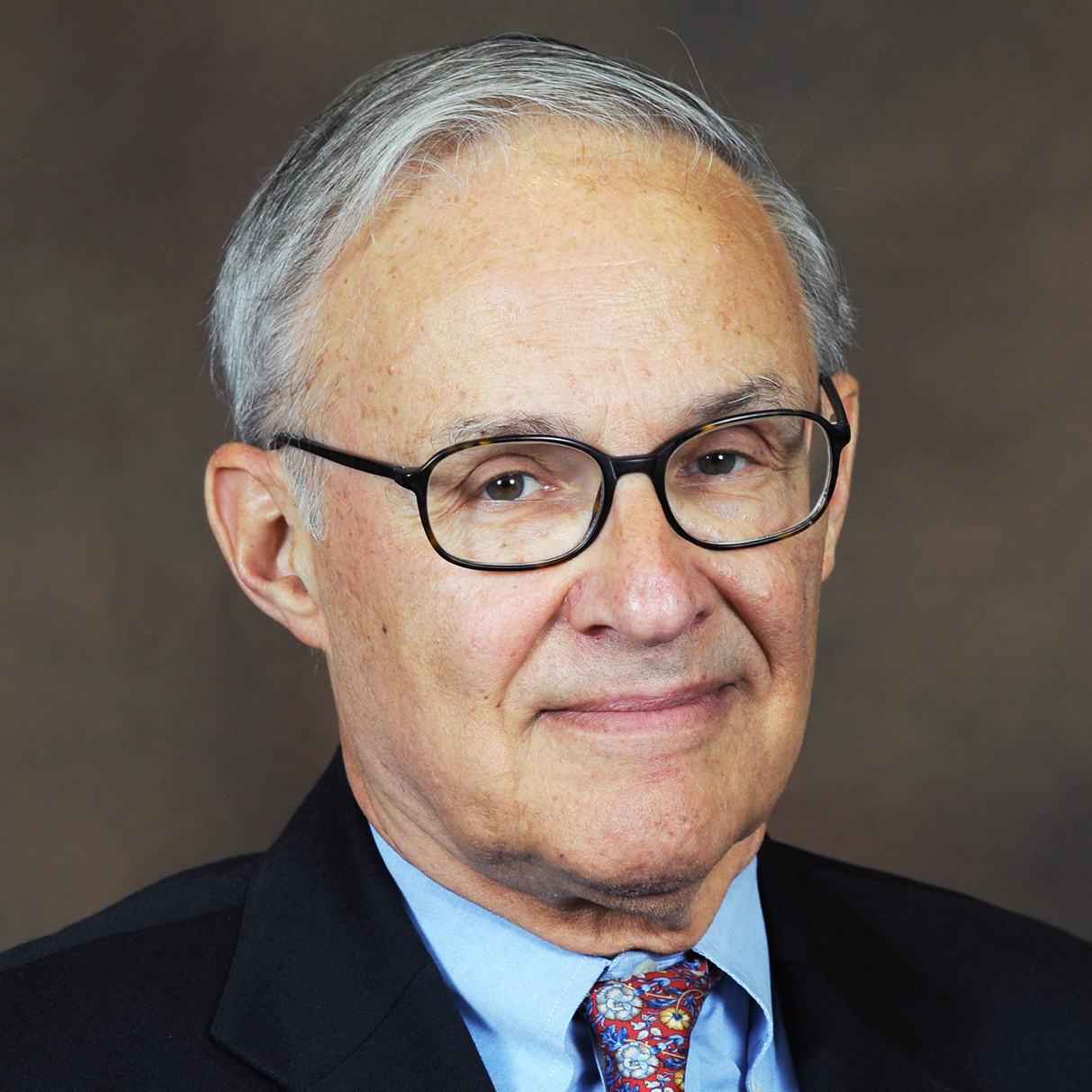
Leon R. Kass, M.D., is the Addie Clark Harding Professor Emeritus in the Committee on Social Thought and the College at the University of Chicago and Emeritus Scholar at AEI. He was the chairman of the President’s Council on Bioethics from 2001 to 2005.

Political Thought & Philosophy
Leon R. Kass, M.D., is the Addie Clark Harding Professor Emeritus in the Committee on Social Thought and the College at the University of Chicago and Emeritus Scholar at AEI. He was the chairman of the President’s Council on Bioethics from 2001 to 2005.
Originally trained in medicine and biochemistry, he shifted directions from doing science to thinking about its human meaning, and he has been engaged for forty years with ethical and philosophical issues raised by biomedical advancements, and, more recently, with broader moral and cultural issues. Dr. Kass taught at St. John’s College (Annapolis) and Georgetown University before returning in 1976 to the University of Chicago, where he was until 2010 an award-winning teacher deeply involved in undergraduate education and committed to the study of classic texts. With his late wife, Amy A. Kass, he helped found a still-popular core humanities course on Human Being and Citizen and a degree-granting major, Fundamentals: Issues and Texts, emphasizing big questions and great books.
His books include, most recently, Founding God’s Nation: Reading Exodus; Reading Ruth: Birth, Redemption, and the Way of Israel, as well as Toward A More Natural Science: Biology and Human Affairs; The Hungry Soul: Eating and the Perfecting of our Nature; Life, Liberty, and the Defense of Dignity: The Challenge for Bioethics; The Beginning of Wisdom: Reading Genesis; What So Proudly We Hail: The American Soul in Story, Speech, and Song; and Leading a Worthy Life: Finding Meaning in Modern Times. Along with coeditors Amy Kass and Diana Schaub, Dr. Kass developed the What So Proudly We Hail e-curriculum, including video discussions and curricula materials that demonstrate how short stories can be used to enhance our understanding of the Meaning of America and the American Calendar.
Dr. Kass served on the National Council on the Humanities of the National Endowment for the Humanities and delivered its Jefferson Lecture in 2009.
To learn more about Dr. Kass, visit Contemporary Thinkers: Leon Kass.
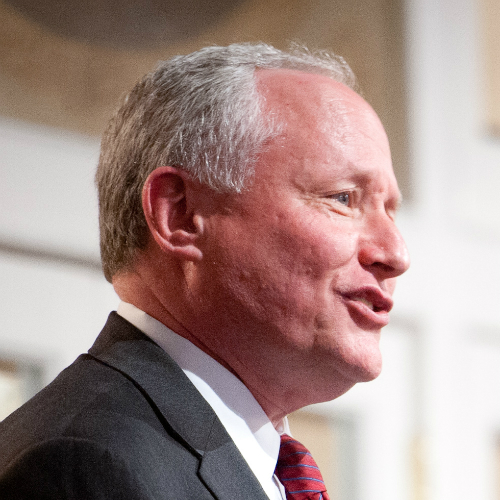
William Kristol is editor-at-large of The Bulwark and founder of The Weekly Standard. Mr. Kristol has served as chief of staff to the Vice President Dan Quayle and to the Secretary of Education. He hosts Conversations with Bill Kristol, which features in-depth conversations with leading figures in American public life.

Political Thought & Philosophy
William Kristol is editor-at-large of The Bulwark. He was a founder of The Weekly Standard, and is a regular guest on leading political commentary shows.
Before starting The Weekly Standard in 1995, Mr. Kristol led the Project for the Republican Future, where he helped shape the strategy that produced the 1994 Republican congressional victory. Prior to that, Mr. Kristol served as chief of staff to Vice President Dan Quayle during the first Bush Administration, and to Education Secretary William Bennett under President Reagan. Before coming to Washington in 1985, Mr. Kristol was on the faculty of Harvard University’s Kennedy School of Government (1983–1985) and the Department of Political Science at the University of Pennsylvania (1979–1983). Mr. Kristol has published widely in areas ranging from foreign policy to constitutional law to political philosophy.
He is co-author, with Lawrence Kaplan, of the best-selling book The War Over Iraq (2003) and the co-editor of The Neoconservative Imagination (with Christopher DeMuth, 1995), Present Dangers (with Robert Kagan, 2000), and The Future is Now: American Confronts the New Genetics (with Eric Cohen, 2002).
He hosts Conversations with Bill Kristol, which features in-depth conversations with leading figures in American public life.
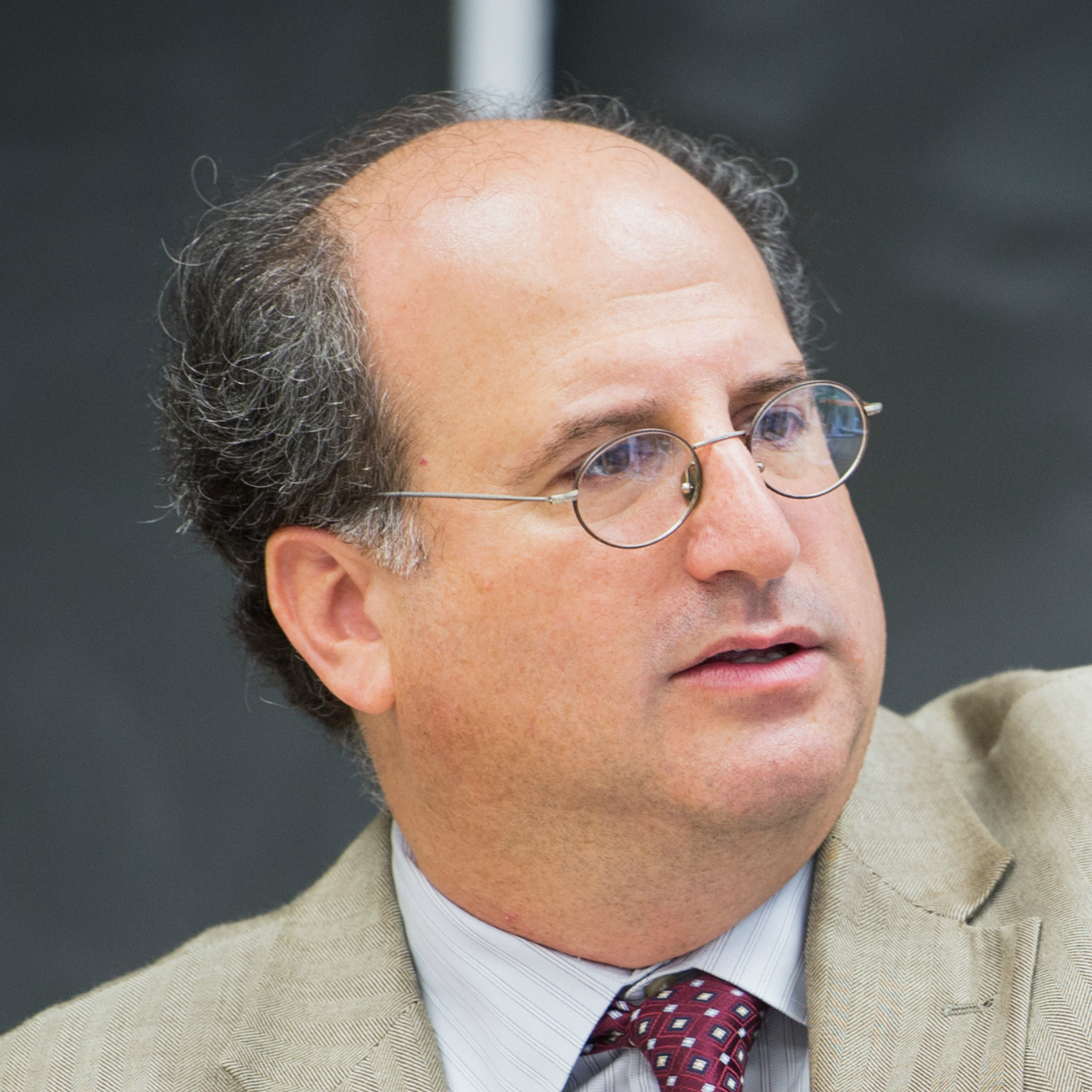
Alan M. Levine is Associate Professor of political theory in the Department of Government and the founding director of the Political Theory Institute at American University. A specialist in the history of Western political thought, Professor Levine’s research interests include ancient and modern political theory.

Political Thought & Philosophy
Alan M. Levine is Associate Professor of political theory in the Department of Government and the founding director of the Political Theory Institute at American University. He is also an Affiliate Associate Professor in AU’s Department of Philosophy. A specialist in the history of Western political thought, Professor Levine’s teaching and research interests include the theoretical principles of the United States, the concept of “America,” and ancient, renaissance, modern, and postmodern political theory.
His publications include Sensual Philosophy: Toleration, Skepticism, and Montaigne’s Politics of the Self (2001), Early Modern Skepticism and the Origins of Toleration (editor, 1999), and A Political Companion to Ralph Waldo Emerson (co-editor, 2011) as well as articles on Montaigne, Machiavelli, Nietzsche, Chinua Achebe, Judith Shklar, European views of America, the Enlightenment idea of commerce, and the origins of toleration.
He has held fellowships at Princeton’s James Madison Program; the Hoover Institution at Stanford; and the Institute of US Studies, School of Advanced Study, University of London. He has received SPA’s Outstanding Teaching Award (2000 & 2001); SPA’s Outstanding Teaching in General Education Award (2000); and AU’s Award for Outstanding Teaching in the General Education Program (2008). He earned his B.A. at the University of Chicago and his M.A. and Ph.D. at Harvard University.
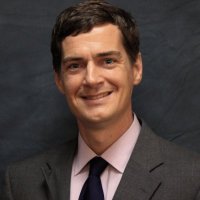

Political Thought & Philosophy
Hugh Liebert is an Associate Professor of American Politics in the Department of Social Sciences at the United States Military Academy in West Point, New York. His primary areas of interest are the history of political thought and American politics and foreign policy.
Liebert is the author of Plutarch’s Politics (2016, Cambridge University Press), which won the Delba Winthrop Award for Excellence in Political Science. He has also edited several volumes: Executive Power in Theory and Practice (2012, Palgrave Macmillan); Thinking Beyond Boundaries: Transnational Challenges to U.S. Foreign Policy (2014, Johns Hopkins University Press); American Grand Strategy and the Future of U.S. Landpower (2014, U.S. Army War College Press); What Is the Worst That Can Happen? The Politics and Policy of Crisis Management (2016, Sloan); and Confronting Inequality: Wealth, Rights, and Power (2016, Sloan).
His articles have appeared in History of Political Thought, Review of Politics, and Armed Forces & Society. He is currently writing a book on Gibbon’s Decline and Fall of the Roman Empire, tentatively titled Religion Around Gibbon, and scheduled to appear from Pennsylvania State University Press in 2017.
He received his BA from Harvard University and his MA and PhD from the Committee on Social Thought at the University of Chicago.
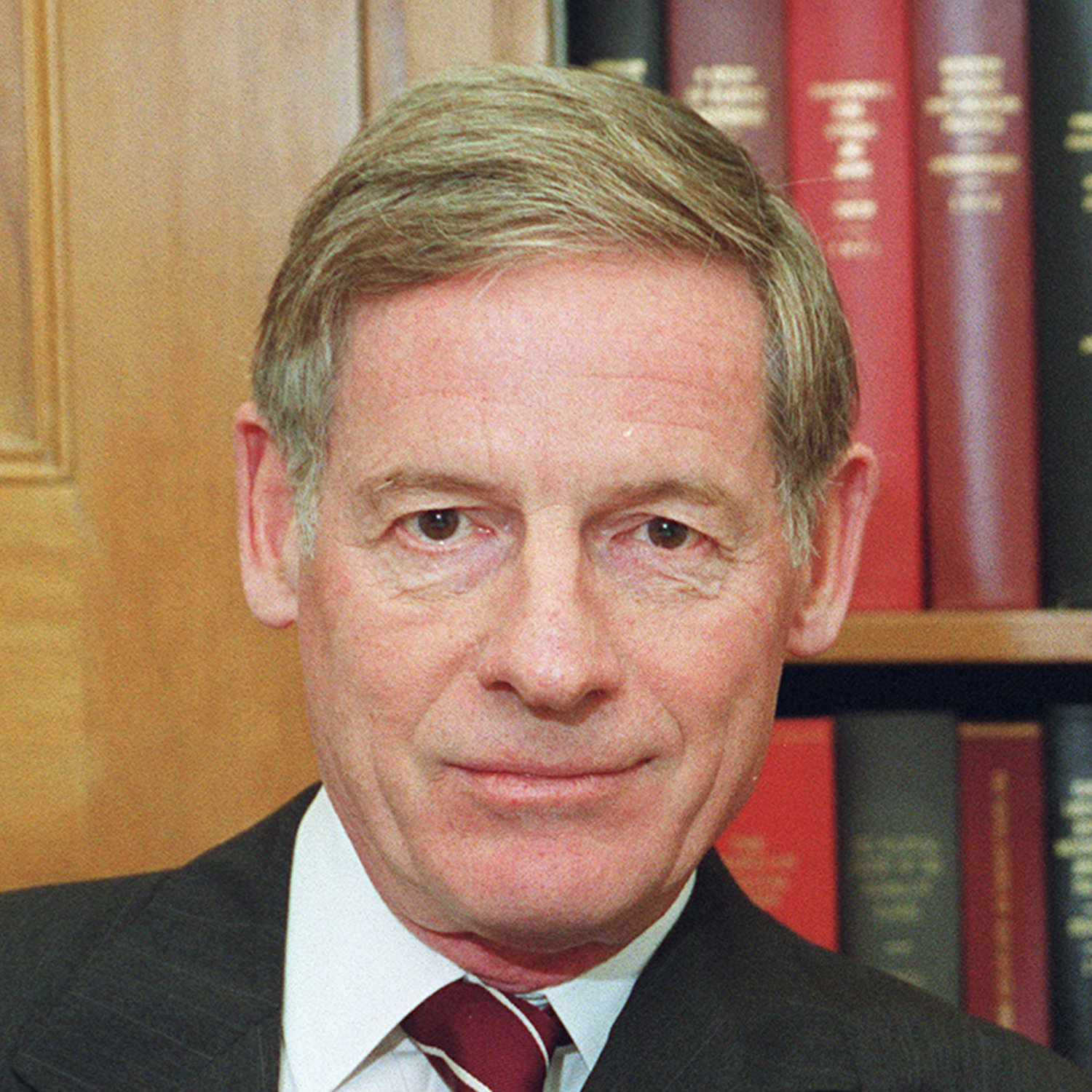
Harvey C. Mansfield is the William R. Kenan, Jr., Professor of Government at Harvard University. He was Chairman of the Government Department from 1973–1977, has held Guggenheim and NEH Fellowships, and has been a Fellow at the National Humanities Center.

Political Thought & Philosophy
Harvey C. Mansfield is the William R. Kenan, Jr., Professor of Government at Harvard University. He was Chairman of the Government Department from 1973–1977, has held Guggenheim and NEH Fellowships, and has been a Fellow at the National Humanities Center.
Mansfield’s first book, Statesmanship and Party Government: A Study of Burke and Bolingbroke, came out in 1965. Since then he has published thirteen more books including three translations of Machiavelli and a translation of Alexis de Tocqueville’s Democracy in America, which he co-translated with his late wife Delba Winthrop. Articles and political analysis by Mansfield frequently appear in periodicals such as the Weekly Standard, the Wall Street Journal, the New Republic, the National Review, and the Times Literary Supplement.
Mansfield’s numerous awards include a Guggenheim Fellowship and a National Humanities Medal. He won the Joseph R. Levenson award for his teaching at Harvard, received the Sidney Hook Memorial award from the National Association of Scholars, and in 2004 accepted a National Humanities Medal from the President. In 2007, he delivered the National Endowment for the Humanities’ Jefferson Lecture. He has hardly left Harvard since his first arrival in 1949, and has been on the faculty since 1962.
He has served as a member of the Council of the American Political Science Association and the National Council on the Humanities, as a fellow of the National Humanities Center, and as president of the New England Historical Association. He lives in Cambridge, Massachusetts.
To learn more about Professor Mansfield, visit Contemporary Thinkers: Harvey Mansfield.
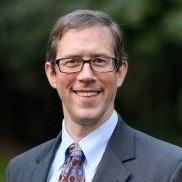
Thomas Merrill is an associate professor in the School of Public Affairs at American University. He is the author of Hume and the Politics of Enlightenment. He is also the co-editor of three edited volumes, including The Political Thought of the Civil War. He was a senior research analyst for the President’s Council on Bioethics during the George W. Bush Administration.

Political Thought & Philosophy
Thomas Merrill is an associate professor in the School of Public Affairs at American University. He is the author of Hume and the Politics of Enlightenment, which won the Delba Winthrop Prize for Best Recent Work in Political Philosophy. He is also the co-editor of three edited volumes, including The Political Thought of the Civil War and has held fellowships from Harvard, Princeton, and the American Enterprise Institute. He was a senior research analyst for the President’s Council on Bioethics during the George W. Bush administration and is the associate director of the Department of Government and, more recently, as department chair.
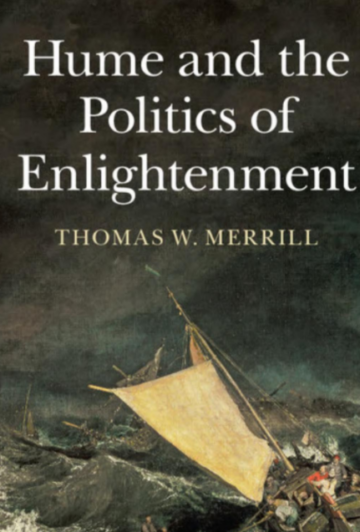
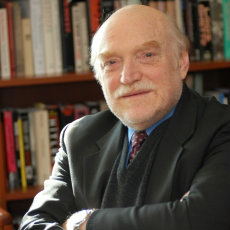
Walter Reich is the Yitzhak Rabin Memorial Professor of International Affairs, Ethics and Human Behavior, and Professor of Psychiatry and Behavioral Sciences at The George Washington University, and a former Director of the United States Holocaust Memorial Museum.

Political Thought & Philosophy
Walter Reich is the Yitzhak Rabin Memorial Professor of International Affairs, Ethics and Human Behavior, and Professor of Psychiatry and Behavioral Sciences at The George Washington University; a Senior Scholar at the Woodrow Wilson International Center for Scholars; and a former Director of the United States Holocaust Memorial Museum.
Dr. Reich is also a Lecturer in Psychiatry at Yale University; Professor of Psychiatry at the Uniformed Services University of the Health Sciences; and Contributing Editor of The Wilson Quarterly.
Dr. Reich has written and lectured widely on the Holocaust and genocide, terrrorism; human rights, national memory, the Israeli-Palestinian conflict; psychiatry, medical ethics and national and international affairs. He is the author of A Stranger in My House: Jews and Arabs in the West Bank (Holt), a co-author of State of the Struggle: Report on the Battle against Global Terrorism (Brookings Institution Press), and the editor of Origins of Terrorism: Psychologies, Ideologies, Theologies, States of Mind (Johns Hopkins University Press and Woodrow Wilson Center Press). His articles and essays have appeared in scholarly and scientific publications as well as in such newspapers and magazines as The New York Times, The Washington Post, The Los Angeles Times, The Wall Street Journal, The Atlantic Monthly, Harper’s, Commentary and The New Republic.
Dr. Reich has worked for the protection of human rights around the world since the early 1970s. He has been a Co-Chair of the Committee of Concerned Scientists since 1995; was the Chair of the Committee on Human Rights of the American Psychiatric Association (1995-98); and was a member of the Committee on Scientific Freedom and Responsibility of the American Association for the Advancement of Science (1985-91).
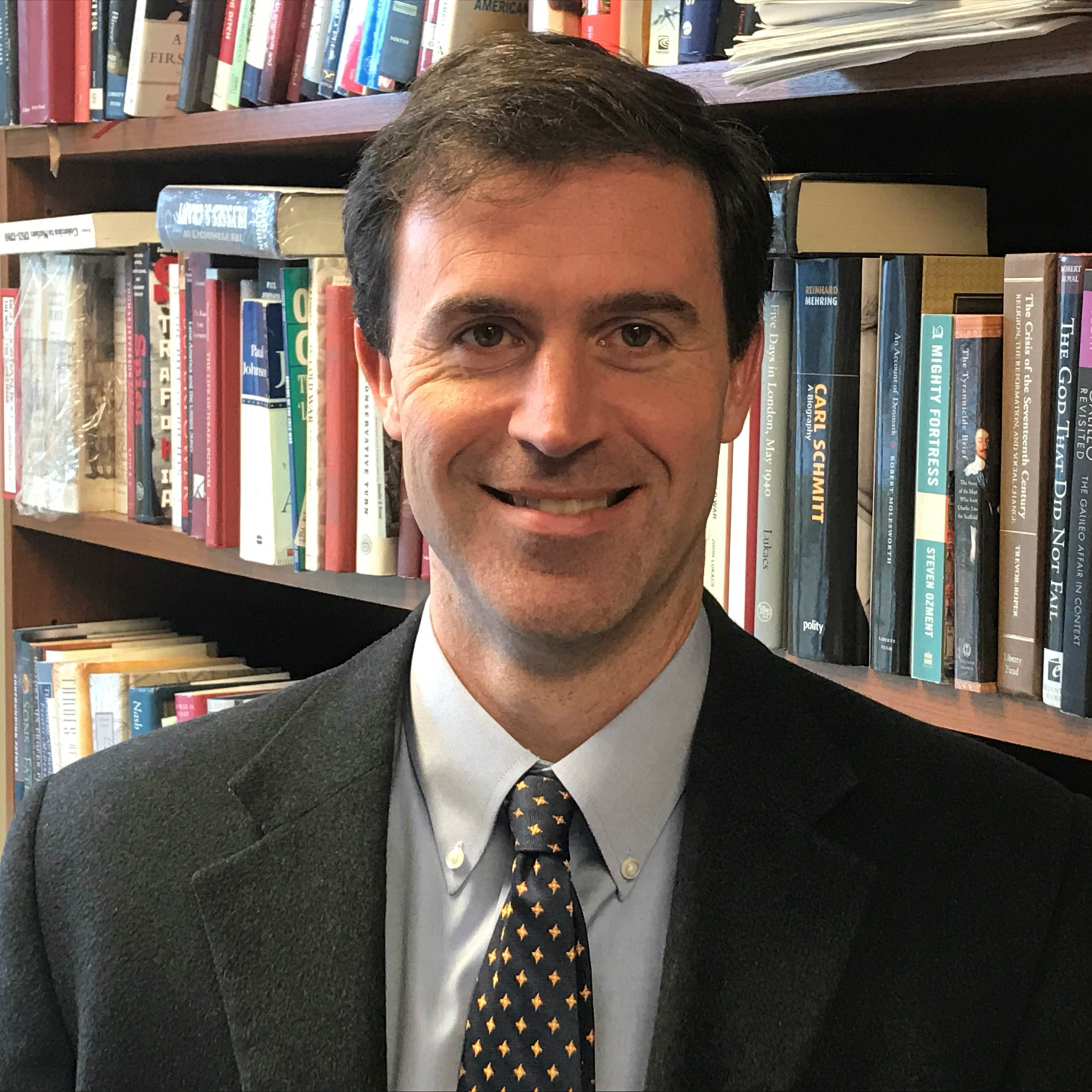
Richard M. Reinsch II is the founding editor of Liberty Fund’s online journal Law and Liberty and the host of LibertyLawTalk. He writes frequently for such publications as National Affairs, Modern Age, National Review Online, The Weekly Standard, and The University Bookman, among other publications.

Political Thought & Philosophy
Richard M. Reinsch II is the founding editor of Liberty Fund’s online journal Law and Liberty, where he also hosts the podcast show Liberty Law Talk, which features interviews with academics and writers in law and political thought.
He is coauthor, with the late Peter A. Lawler, of A Constitution in Full: The Unwritten Foundation of American Liberty, to be published by University Press of Kansas in the Spring 2019. He is the author of Whittaker Chambers: The Spirit of a Counterrevolutionary (ISI Books, 2010), and is the editor of Seeking the Truth: An Orestes Brownson Anthology (Catholic University of America Press, 2016).
Richard’s writings have appeared in Perspectives on Political Science, National Affairs, American Affairs, The American Conservative, Modern Age, National Review Online, The Weekly Standard, and The University Bookman, among other publications. He received his law degree in 2004 from the University of North Carolina at Chapel Hill. He practiced law in securities and mergers & acquisitions until arriving at Liberty Fund.
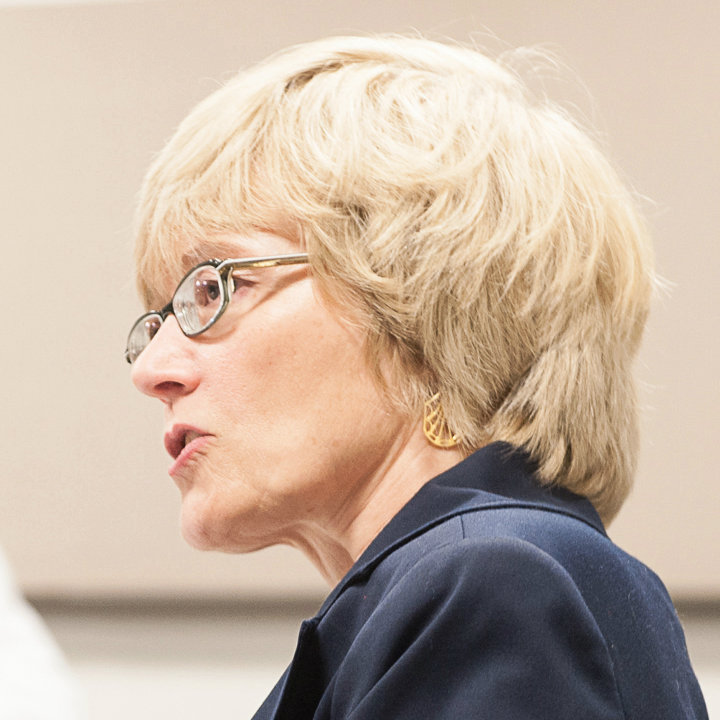
Diana J. Schaub is Professor of Political Science at Loyola University Maryland and a member of the Hoover Institution’s task force on The Virtues of a Free Society. From 2004 to 2009 she was a member of the President’s Council on Bioethics.

Political Thought & Philosophy
Diana J. Schaub is Professor of Political Science at Loyola University Maryland, a visiting scholar at the American Enterprise Institute, as well as a member of the Hoover Institution’s task force on The Virtues of a Free Society.
She is the author of Erotic Liberalism: Women and Revolution in Montesquieu’s “Persian Letters” (Rowman & Littlefield, 1995), along with a number of book chapters and articles in the fields of political philosophy and American political thought. She is coeditor, along with Amy and Leon Kass of What So Proudly We Hail: The American Soul in Story, Speech, and Song (ISI, 2011). She is a frequent contributor to opinion journals such as the Claremont Review of Books, the Weekly Standard, National Affairs, and the New Atlantis.
From 1994 to 1995 Professor Schaub was the postdoctoral fellow of the Program on Constitutional Government at Harvard University. From 2004 to 2009 she was a member of the President’s Council on Bioethics. She has taught at the University of Michigan at Dearborn and served as assistant editor of The National Interest. She earned an A.B. from Kenyon College, where she was elected to Phi Beta Kappa, and an M.A. and Ph.D. from the University of Chicago.
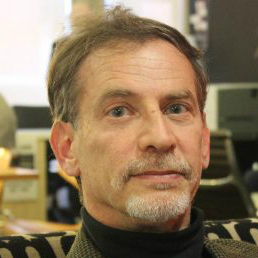
Darren Staloff is Professor of History at the City College of New York and the Graduate Center of the City University of New York. Professor Staloff has published numerous papers and reviews on the subject of early American history.

Political Thought & Philosophy
Darren Staloff is Professor of History at the City College of New York and the Graduate Center of the City University of New York.
Professor Staloff has published numerous papers and reviews on the subject of early American history and is the author of The Making of an American Thinking Class: Intellectuals and Intelligentsia in Puritan Massachusetts (1998) and Hamilton, Adams, Jefferson: The Politics of Enlightenment and the American Founding (2005).
He has recorded dozens of audio and video tapes (nationally distributed) on U.S. and world history and major philosophers. He has received many fellowships, including The James Madison Program in American Ideals and Institutions at Princeton University as well as an NEH grant and a post-doctoral fellowship from the Omahundro Institute of Early American History and Culture. He earned his B.A. from Columbia College and his M.A., M.Phil., and Ph.D. from Columbia University.

Jenna Silber Storey is Assistant Professor in Politics and International Affairs at Furman University and Executive Director of Furman’s Tocqueville Program. She is the co-author of a book with Benjamin Storey: Why We Are Restless: On the Modern Quest for Contentment (Princeton University Press, 2021). Further information about her work can be found at www.jbstorey.com.

Political Thought & Philosophy
Jenna Silber Storey is Assistant Professor in Politics and International Affairs at Furman University, and Executive Director of Furman’s Tocqueville Program, an intellectual community of students and faculty who aim to reflect on contemporary issues with a perspective informed by the study of the history of political thought. She is also a Board Member of Veritas Preparatory School in Greenville, South Carolina.
Her work has appeared in edited volumes as well as The Washington Post, the Australian Broadcasting Corporation, First Things, realclearbooks, The New Atlantis, VoeglinView, The Weekly Standard, and The Boston Globe. She is the co-author of a book with Benjamin Storey: Why We Are Restless: On the Modern Quest for Contentment (Princeton University Press, 2021). Further information about her work can be found at www.jbstorey.com.
Dr. Storey received her PhD from the Committee on Social Thought at the University of Chicago, where she was a John M. Olin Junior Fellow, and her B.A. from the University Professors Program at Boston University, where she also worked as Executive Assistant to the Superintendent for the Boston University-Chelsea Schools Partnership. In 2019 Dr. Storey won the Silas N. Pearman award for teaching in Furman’s first-year Engaged Living Program.
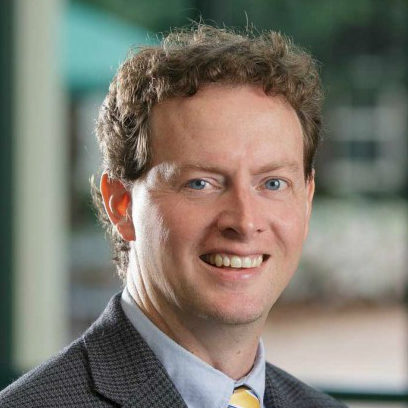
Benjamin Storey is Associate Professor of Politics and International Affairs at Furman University. His interests focus on the history of political philosophy. He is currently completing a book entitled The Restless Age: Four French Thinkers on the Quest for Self-Understanding in an Unsettled Modernity.

Political Thought & Philosophy
Benjamin Storey is Associate Professor of Politics and International Affairs at Furman University. At Furman, he is Co-Founder and Co-Director of the Tocqueville Program, which aims to revivify traditional liberal education in a modern context.
His publications have appeared in First Things, The New Atlantis, The Weekly Standard, The Claremont Review of Books, Doublethink Quarterly, The Journal of Politics, The Review of Politics, Perspectives on Political Science, and Society. He recently co-authored a book with Jenna Silber Storey entitled Why We Are Restless: On the Modern Quest for Contentment.
In 2016-2017, he was a Visiting Fellow at the James Madison Program in American Ideals and Institutions at Princeton University. He is the winner of Furman’s 2016 Meritorious Teaching Award, and of the 2011 “American Scholar” Award given by Furman’s chapter of Phi Beta Kappa.
He received his MA and PhD from the Committee on Social Thought at the University of Chicago, and his BA in History from the University of North Carolina at Chapel Hill.
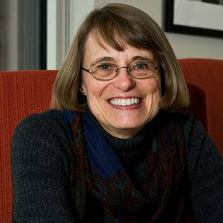
Vickie Sullivan is the Cornelia M. Jackson Professor of Political Science and teaches and studies political thought and philosophy. She also maintains teaching and research interests in politics and literature. She has published extensively on Montesquieu and Machiavelli and is the co-editor of Shakespeare’s Political Pageant.

Political Thought & Philosophy
Vickie Sullivan is the Cornelia M. Jackson Professor of Political Science and teaches and studies political thought and philosophy. She also maintains teaching and research interests in politics and literature.
She has published the monographs Montesquieu and the Despotic Ideas of Europe (2017); Machiavelli, Hobbes, and the Formation of a Liberal Republicanism in England (2004); and Machiavelli’s Three Romes: Religion, Human Liberty, and Politics Reformed (1996 and 2020). She is the editor of The Comedy and Tragedy of Machiavelli ; the co-editor of Shakespeare’s Political Pageant: Essays in Politics & Literature ; and the co-author of “Machiavelli’s Political Thought” in Oxford Bibliographies.
Her articles have appeared in The American Political Science Review, History of European Ideas, History of Political Thought, Political Theory, Polity, and Review of Politics.

Flagg Taylor is an Associate Professor of Government at Skidmore College. He is editor most recently of The Long Night of the Watchman: Essays by Václav Benda, 1977–1989. He is currently writing a book on Czech dissent in the 1970s and 1980s.

Political Thought & Philosophy
Flagg Taylor is an Associate Professor of Government at Skidmore College. His research specialty is in the history of political thought and American government, especially the question of executive power.
He is the co-author of The Contested Removal Power, 1789-2010, author of numerous articles, and editor of The Great Lie: Classic and Recent Appraisals of Ideology and Totalitarianism and The Long Night of the Watchman: Essays by Václav Benda, 1977–1989. He holds a Ph.D. and an M.A. in political science from Fordham University and a B.A. from Kenyon College

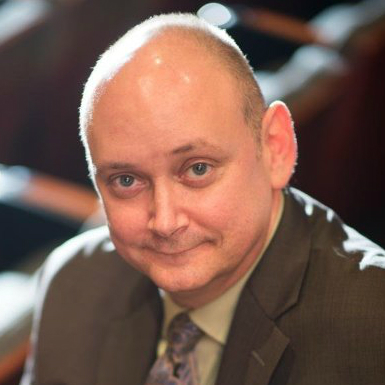
Greg Weiner is associate professor of Political Science, founding director of the Daniel Patrick Moynihan Center for Scholarship and Statesmanship, and provost at Assumption College. He is the author of American Burke: The Uncommon Liberalism of Daniel Patrick Moynihan.

Political Thought & Philosophy
Greg Weiner is associate professor of Political Science, founding director of the Daniel Patrick Moynihan Center for Scholarship and Statesmanship, and Provost at Assumption College. He is the author of American Burke: The Uncommon Liberalism of Daniel Patrick Moynihan and Old Whigs: Burke, Lincoln and the Politics of Prudence.
Professor Weiner’s research and teaching converge at the intersection of political theory and the Constitution. His research and teaching interests include the political theory of the Constitution, the political thought of James Madison, civil liberties and the role of the Supreme Court. Winner of the nationally awarded Jack Miller Center’s Chairman’s Prize for the best dissertation in American Political Thought, he was a Postdoctoral Research Associate with the Political Theory Project at Brown University and has taught at Georgetown and Johns Hopkins Universities.
Professor Weiner’s research and teaching are informed by the several years he spent as a high-level aide and consultant in national politics, including serving as Communications and Policy Director to U.S. Senator Bob Kerrey, D-Nebraska, and as founder of the Washington, D.C.-based speechwriting firm Content Communications, LLC.

Elliott Abrams is Senior Fellow for Middle Eastern studies at the Council on Foreign Relations in Washington, DC. He served as deputy assistant to the president and deputy national security advisor in the administration of President George W. Bush, where he supervised U.S. policy in the Middle East for the White House.

War & Foreign Affairs
Elliott Abrams is Senior Fellow for Middle Eastern studies at the Council on Foreign Relations in Washington, DC. He served as deputy assistant to the president and deputy national security advisor in the administration of President George W. Bush, where he supervised U.S. policy in the Middle East for the White House.
After serving on the staffs of Senators Henry M. Jackson and Daniel P. Moynihan, he was an assistant secretary of state in the Reagan administration and received the secretary of state’s Distinguished Service Award from Secretary George P. Shultz. In 2012, the Washington Institute for Near East Policy gave him its Scholar-Statesman Award.
Abrams was president of the Ethics and Public Policy Center in Washington, DC, from 1996 until joining the White House staff. He was a member of the U.S. Commission on International Religious Freedom from 1999 to 2001 and chairman of the commission in the latter year, and served a second term as a member of the Commission in 2012-2014. From 2009 to 2016, Abrams was a member of the U.S. Holocaust Memorial Council, which directs the activities of the U.S. Holocaust Memorial Museum. He is a member of the board of the National Endowment for Democracy, and teaches U.S. foreign policy at Georgetown University’s Edmund A. Walsh School of Foreign Service.
Abrams is the author of five books: Undue Process, Security and Sacrifice, Faith or Fear: How Jews Can Survive in a Christian America, Tested by Zion: The Bush Administration and the Israeli-Palestinian Conflict, and most recently Realism and Democracy: American Foreign Policy After the Arab Spring. He is the editor of three more, Close Calls: Intervention, Terrorism, Missile Defense and “Just War” Today; Honor Among Nations: Intangible Interests and Foreign Policy; and The Influence of Faith: Religious Groups and U.S. Foreign Policy.

Daniel Blumenthal is the Director of Asian Studies at the American Enterprise Institute, where he focuses on East Asian security issues and Sino-American relations. Mr. Blumenthal has both served in and advised the U.S. government on China issues for over a decade.

War & Foreign Affairs
Daniel Blumenthal is the Director of Asian Studies at the American Enterprise Institute, where he focuses on East Asian security issues and Sino-American relations. Mr. Blumenthal has both served in and advised the U.S. government on China issues for over a decade.
From 2001 to 2004, he served as senior director for China, Taiwan, and Mongolia at the Department of Defense. Additionally, he served as a commissioner on the congressionally-mandated U.S.-China Economic and Security Review Commission since 2006-2012, and held the position of vice chairman in 2007. He has also served on the Academic Advisory Board of the congressional U.S.-China Working Group. Mr. Blumenthal is the coauthor of An Awkward Embrace: The United States and China in the 21st Century (AEI Press, November 2012).
He holds a B.A. from Washington University, an M.A. from the School of Advanced International Studies at Johns Hopkins University, and a J.D. from Duke Law School.

Christian Brose is a Senior Fellow at the Carnegie Endowment for International Peace and the Head of Strategy at Anduril Industries, prior to which he served as staff director of the Senate Armed Services Committee. He was also responsible for leading the production, negotiation, and passage of four National Defense Authorization Acts, which set policy and authorized spending for all U.S. national defense activities.

War & Foreign Affairs
Christian Brose is a Senior Fellow at the Carnegie Endowment for International Peace and the Head of Strategy at Anduril Industries, prior to which he served as staff director of the Senate Armed Services Committee. He was also responsible for leading the production, negotiation, and passage of four National Defense Authorization Acts (FY16-19), which set policy and authorized spending for all U.S. national defense activities.
Mr. Brose conducted official travel to more than 60 countries during his work in the Senate. From 2008-09, he was senior editor of Foreign Policy magazine. Prior to that, he served as policy adviser and chief speechwriter to Secretary of State Condoleezza Rice from 2005-08, working as a member of the Secretary’s Policy Planning Staff and supporting the Secretary on regular foreign travel. He began his career in public service as a speechwriter for Secretary of State Colin Powell.
Mr. Brose studied political science at Kenyon College and international economics at the Johns Hopkins University’s School of Advanced International Studies.
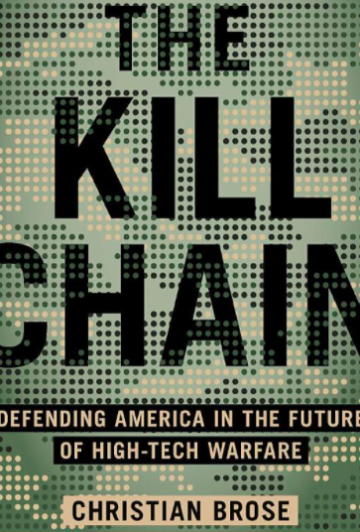
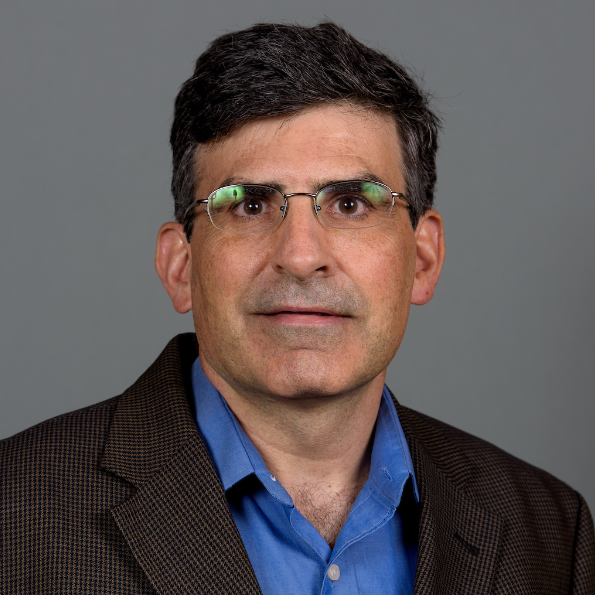
Paul O. Carrese is the founding Director of the School of Civic and Economic Thought and Leadership at Arizona State University. He is author of The Cloaking of Power: Montesquieu, Blackstone, and the Rise of Judicial Activism, and co-editor of three other books on George Washington, constitutionalism, and U.S. grand strategy.

War & Foreign Affairs
Paul O. Carrese is the founding Director of the School of Civic and Economic Thought and Leadership at Arizona State University. For nearly two decades he was a professor of political science at the United States Air Force Academy.
He is author of The Cloaking of Power: Montesquieu, Blackstone, and the Rise of Judicial Activism, and co-editor of three other books on George Washington, constitutionalism, and American grand strategy. His most recent book is Democracy in Moderation: Montesquieu, Tocqueville, and Sustainable Liberalism.
He has held fellowships at Harvard University; the University of Delhi (as a Fulbright fellow); and the James Madison Program, Politics Department, Princeton University.

Michael Doran, an expert in U.S. policy toward the Middle East, radical Islam, and the Arab-Israeli conflict, is a Senior Fellow at the Hudson Institute. He has also held a number of senior U.S. government posts related to Middle East policy and strategic communication.

War & Foreign Affairs
Michael Doran is a Senior Fellow at the Hudson Institute in Washington, DC. He specializes in Middle East security issues.
In the administration of President George W. Bush, Doran served in the White House as a senior director in the National Security Council, where he was responsible for helping to devise and coordinate United States strategies on a variety of Middle East issues, including Arab-Israeli relations and U.S. efforts to contain Iran and Syria. He also served in the Bush administration as a senior advisor in the State Department and a deputy assistant secretary of defense in the Pentagon.
Before coming to Hudson, Doran was a Senior Fellow at the Brookings Institution. He has also held teaching positions at NYU, Princeton, and the University of Central Florida. He is the author of Pan-Arabism before Nasser, which analyzes the first Arab-Israeli war as an inter-Arab conflict, and Ike’s Gamble: America’s Rise to Dominance in the Middle East, about President Eisenhower and the Middle East. He appears frequently on television, and has published extensively in Foreign Affairs, The American Interest, Commentary, Mosaic Magazine, The Wall Street Journal, The Washington Post, and The New York Times.
Born in Kokomo, Indiana, Doran went to elementary school in Carmel, outside of Indianapolis, before his family moved to Fullerton, California, where he graduated from Sunny Hills High School. He received a B.A. from Stanford and an M.A. and Ph.D. in Near Eastern Studies from Princeton.
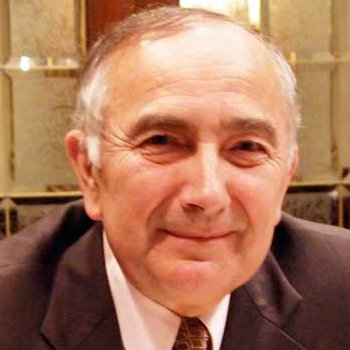
LTG James M. Dubik (U.S. Army, Ret.) is a Senior Fellow at the Institute for the Study of War and a Professor at Georgetown University’s Security Studies Program. General Dubik has extensive operational experience in Iraq, Afghanistan, Japan, Korea, Thailand, Bosnia, Haiti, Panama, and in many NATO countries.

War & Foreign Affairs
LTG James M. Dubik (U.S. Army, Ret.) is a Senior Fellow at the Institute for the Study of War and a Professor at Georgetown University’s Security Studies Program. General Dubik has extensive operational experience in Iraq, Afghanistan, Japan, Korea, Thailand, Bosnia, Haiti, Panama, Honduras, and in many NATO countries.
His last job on active duty was as Commanding General of the Multinational Security Transition Command-Iraq (MNSTC-I) and the NATO Training Mission-Iraq during the Surge of 2007–2008. He is a member of the U.S. Army Ranger Hall of Fame and a distinguished member of the U.S. Army 75th Ranger Regiment.
General Dubik taught Philosophy at West Point and Campaign Theory and Practice at the U.S. Army School of Advanced Military Studies, Fort Leavenworth, Kansas. He has completed an MIT fellowship program for national security studies as well as executive programs in national security at Harvard’s JFK School of Government and Syracuse University’s Maxwell School of Citizenship and Public Affairs. He is the author, most recently, of Just War Reconsidered: Strategy, Ethics, and Theory.
He holds a Bachelor’s Degree in Philosophy from Gannon University, Erie, Pennsylvania; a Masters in Military Arts and Sciences from the Army Command and General Staff College, Fort Leavenworth, Kansas; and a Ph.D. in Philosophy from the Johns Hopkins University.
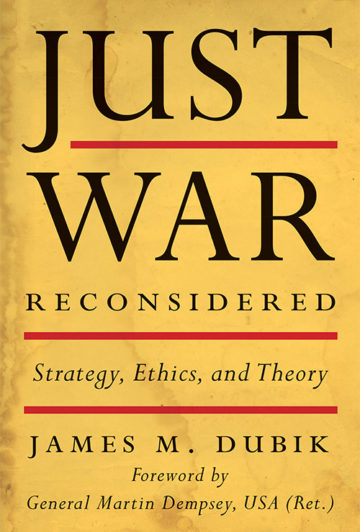
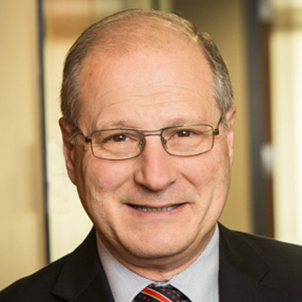
Eric S. Edelman is a Counselor at the Center for Strategic and Budgetary Assessments and the Roger Hertog Distinguished Practitioner-in-Residence at the Philip Merrill Center for Strategic Studies at Johns Hopkins. He has served as U.S. ambassador to the Republics of Finland and Turkey.

War & Foreign Affairs
Ambassador Eric S. Edelman retired as a career minister from the U.S. Foreign Service on May 1, 2009. He is currently a Roger Hertog Practitioner in Residence at Johns Hopkins SAIS and Counselor at the Center for Strategic and Budgetary Assessments.
Edelman has served in senior positions at the Departments of State and Defense as well as the White House where he led organizations providing analysis, strategy, policy development, security services, trade advocacy, public outreach, citizen services and congressional relations. As the undersecretary of defense for policy (August, 2005-January 2009) he oversaw strategy development as DoD’s senior policy official with global responsibility for bilateral defense relations, war plans, special operations forces, homeland defense, missile defense, nuclear weapons and arms control policies, counter-proliferation, counter-narcotics, counter-terrorism, arms sales, and defense trade controls.
He served as U.S. ambassador to the Republics of Finland and Turkey in the Clinton and Bush Administrations and was principal deputy assistant to the vice president for national security affairs. In other assignment he has been chief of staff to Deputy Secretary of State Strobe Talbott, special assistant to Undersecretary of State for Political Affairs Robert Kimmitt and special assistant to Secretary of State George Shultz. His other assignments include the State Department Operations Center, Prague, Moscow, and Tel Aviv, where he was a member of the U.S. Middle East delegation to the West Bank/Gaza autonomy talks.
He has been awarded the Department of Defense Medal for Distinguished Public Service, the Presidential Distinguished Service Award, and several Department of State Superior Honor Awards. In January 2011 he was awarded the Legion d’Honneur by the French Government.
He received a bachelor’s degree in history and government from Cornell University and a doctorate in U.S. diplomatic history from Yale University.
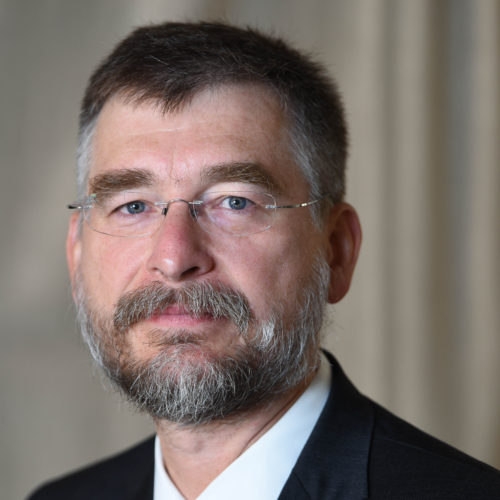
Jakub Grygiel is an Associate Professor at the Catholic University of America. From 2017–18, he was a member of the Policy Planning Staff at the U.S. Department of State. His most recent book is Return of the Barbarians: Confronting Non-State Actors from Ancient Rome to the Present.

War & Foreign Affairs
Jakub Grygiel is an Associate Professor at the Catholic University of America. From 2017–2018, he was a senior advisor to the Secretary of State in the Office of Policy Planning working on European affairs.
Previously, he was a Senior Fellow at the Center for European Policy Analysis and on the faculty of SAIS-Johns Hopkins University. He has previously worked as a consultant for the OECD in Paris and the World Bank in Washington.
His most recent book is Return of the Barbarians: Confronting Non-State Actors from Ancient Rome to the Present. He is coauthor of The Unquiet Frontier: Rising Rivals, Vulnerable Allies, and the Crisis of American Power (with A. Wess Mitchell) and also the author of Great Powers and Geopolitical Change. His writings on international relations and security studies have appeared in The American Interest, Journal of Strategic Studies, Orbis, Commentary, Joint Forces Quarterly, Political Science Quarterly, as well as U.S., Swiss, Polish and Italian newspapers. He earned a Ph.D., M.A. and an MPA from Princeton University, and a BSFS Summa Cum Laude from Georgetown University.
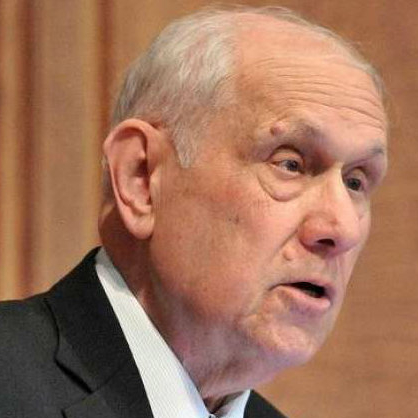
Donald Kagan is the Sterling Professor Emeritus of Classics and History at Yale University. His four-volume History of the Peloponnesian War is the leading scholarly work on the subject. He is also the author of many books on ancient and modern topics, including On the Origins of War and the Preservation of Peace.

War & Foreign Affairs
Donald Kagan is the Sterling Professor Emeritus of Classics and History at Yale University. His four-volume History of the Peloponnesian War is the leading scholarly work on the subject. He is also the author of many books on ancient and modern topics, including On the Origins of War and the Preservation of Peace, The Great Dialogue: A History of Greek Political Thought from Homer to Polybius, and Thucydides: The Reinvention of History.
A former dean of Yale College, he received his Ph.D. in 1958 from The Ohio State University. Professor Kagan has won numerous awards and fellowships, including four teaching awards at Cornell and Yale. In 2002 he was the recipient of the National Humanities Medal, and in 2005 was named the National Endowment for the Humanities Jefferson Lecturer.
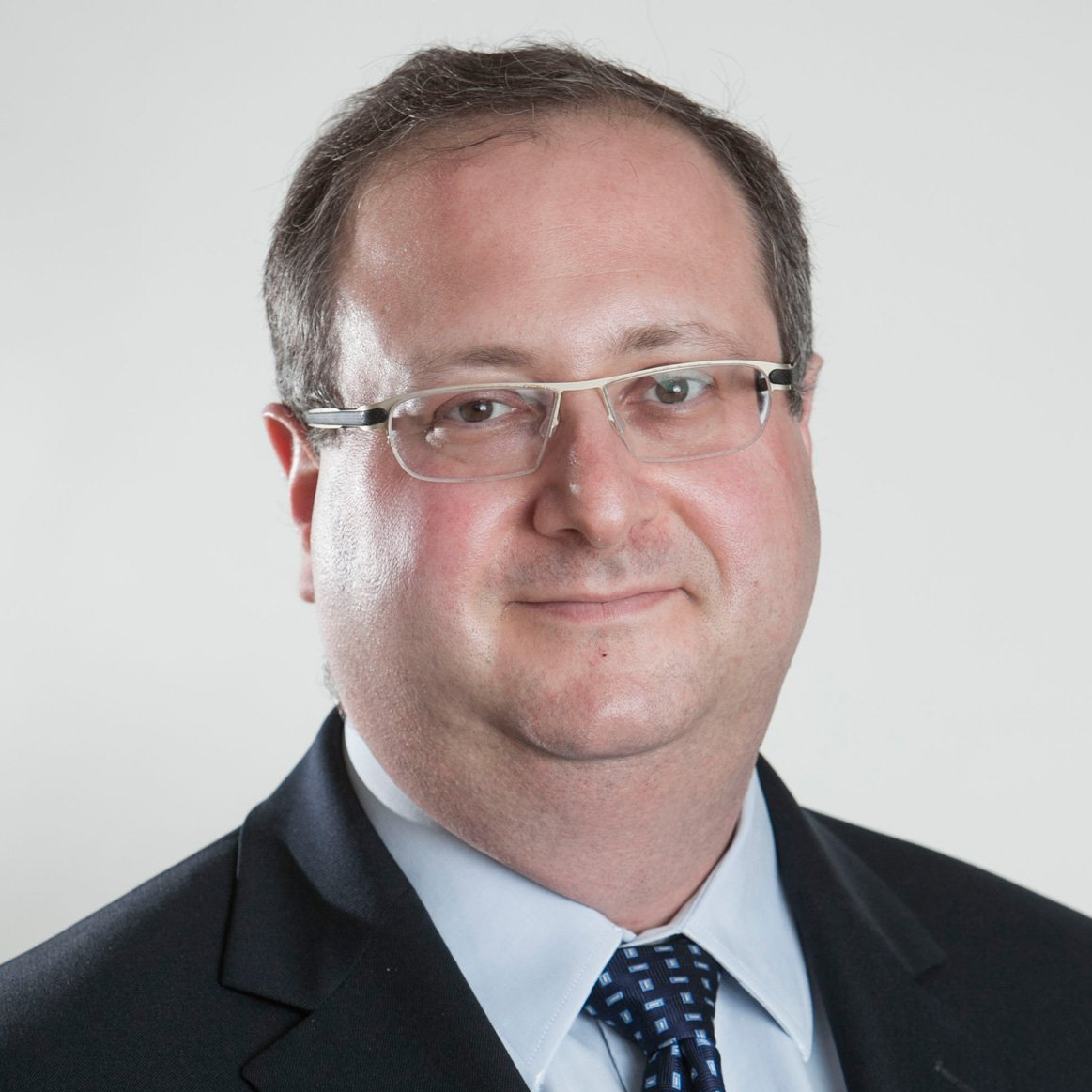
Frederick W. Kagan is a Senior Instructor with the Hertog War Studies Program at the Institute for the Study of War. The author of the 2007 report “Choosing Victory: A Plan for Success in Iraq,” he is one of the intellectual architects of the successful “surge” strategy in Iraq. He is the Director of AEI’s Critical Threats Project.

War & Foreign Affairs
Frederick W. Kagan is a Senior Instructor with the Hertog War Studies Program at the Institute for the Study of War. The author of the 2007 report “Choosing Victory: A Plan for Success in Iraq,” he is one of the intellectual architects of the successful “surge” strategy in Iraq. He is the Robert H. Malott Chair and Director of the Critical Threats Project at the American Enterprise Institute (AEI).
In 2009, he served in Kabul, Afghanistan, as part of General Stanley McChrystal’s strategic assessment team, and he returned to Afghanistan in 2010, 2011, and 2012 to conduct research for Generals David Petraeus and John Allen. In July 2011, Chairman of the Joint Chiefs of Staff Admiral Mike Mullen awarded him the Distinguished Public Service Award, the highest honor the Chairman can present to civilians who do not work for the Department of Defense, for his volunteer service in Afghanistan.
He is coauthor of the report Defining Success in Afghanistan (AEI and the Institute for the Study of War, 2010) and author of the series of reports Choosing Victory (AEI), which recommended and monitored the US military surge in Iraq. His most recent book is Lessons for a Long War: How America Can Win on New Battlefields (AEI Press, 2010, with Thomas Donnelly). Previously an associate professor of military history at West Point, Dr. Kagan is a contributing editor at the Weekly Standard and has written for Foreign Affairs, the Wall Street Journal, the Washington Post, the Los Angeles Times, and other periodicals.
He holds a Ph.D. from Yale University in Russian and Soviet military history.
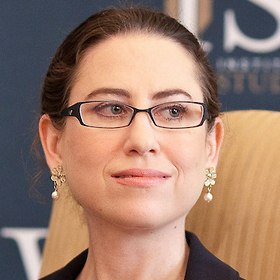
Kimberly Kagan is a Senior Instructor with the Hertog War Studies Program and founder and president of the Institute for the Study of War. She is a military historian who has taught at the U.S. Military Academy at West Point, Yale, Georgetown, and American University.

War & Foreign Affairs
Kimberly Kagan is a Senior Instructor with the Hertog War Studies Program and founder and president of the Institute for the Study of War. She is a military historian who has taught at the U.S. Military Academy at West Point, Yale, Georgetown, and American University.
Dr. Kagan served in Kabul for seventeen months from 2010 to 2012 working for commanders of the International Security Assistance Force, General David H. Petraeus and subsequently General John Allen. Admiral Mike Mullen, as Chairman of the Joint Chiefs of Staff, recognized Dr. Kagan for this deployment as a volunteer with the Distinguished Public Service Award, the highest honor the Chairman can present to civilians who do not work for the Department of Defense.
Dr. Kagan previously served as a member of General Stanley McChrystal’s strategic assessment team, comprised of civilian experts, during his campaign review in June and July 2009. She conducted many regular battlefield circulations of Iraq between May 2007 and April 2010 while General Petraeus and General Raymond T. Odierno served as the MNF-I Commanding General.
Dr. Kagan held an Olin Postdoctoral Fellowship in Military History at Yale International Security Studies in 2004 to 2005 and was a National Security Fellow at Harvard’s Olin Institute for Strategic Studies in 2002 to 2003. She received her B.A. in Classical Civilization and her Ph.D. in History from Yale University.
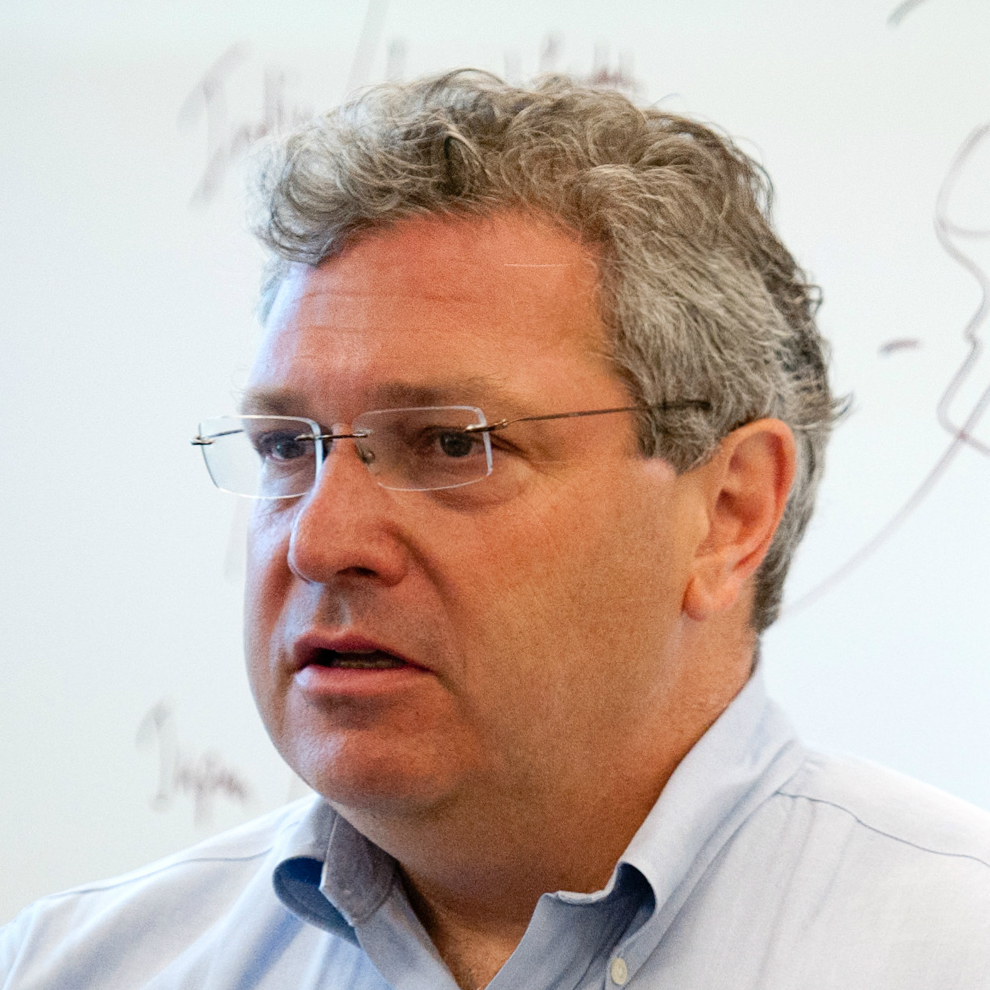
Robert Kagan is a senior fellow at the Brookings Institution. He served in the State Department from 1984 to 1988 as a member of the policy planning staff, as principal speechwriter for Secretary of State George P. Shultz, and as deputy for policy in the Bureau of Inter-American Affairs.

War & Foreign Affairs
Robert Kagan is a Senior Fellow in the Center on the United States and Europe in Foreign Policy at the Brookings Institution. He served in the State Department from 1984 to 1988 as a member of the policy planning staff, as principal speechwriter for Secretary of State George P. Shultz, and as deputy for policy in the Bureau of Inter-American Affairs.
Dr. Kagan is listed by Foreign Policy magazine as one of the world’s “Top 100 Public Global Thinkers.” He writes a monthly column on world affairs for The Washington Post, and is a contributing editor at both The Weekly Standard and The New Republic. His most recent book is The Jungle Grows Back: America and Our Imperiled World. His previous books include The World America Made, The Return of History and the End of Dreams, Dangerous Nation: America’s Place in the World from its Earliest Days to the Dawn of the 20th Century, Of Paradise and Power, and A Twilight Struggle: American Power and Nicaragua, 1977-1990.
Dr. Kagan also serves as a member of the Secretary of State’s foreign affairs policy board and is co-chairman of the bipartisan Working Group on Egypt. He is a graduate of Yale University and Harvard University’s Kennedy School of Government and holds a Ph.D. in American History from American University.
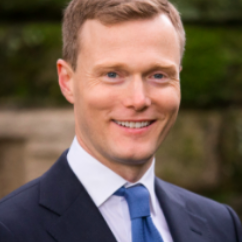
Matthew Kroenig is a Professor in the Department of Government and the Edmund A. Walsh School of Foreign Service at Georgetown University. A 2019 study in Perspectives on Politics ranked him as one of the top 25 most-cited political scientists of his generation. He has served in several positions in the U.S. Department of Defense and the intelligence community in the Bush and Obama administrations.

War & Foreign Affairs
Matthew Kroenig is a Professor in the Department of Government and the Edmund A. Walsh School of Foreign Service at Georgetown University. A 2019 study in Perspectives on Politics ranked him as one of the top 25 most-cited political scientists of his generation. Dr. Kroenig is the author or editor of seven books, including The Return of Great Power Rivalry: Democracy versus Autocracy from the Ancient World to the US and China, The Logic of American Nuclear Strategy: Why Strategic Superiority Matters, and Exporting the Bomb: Technology Transfer and the Spread of Nuclear Weapons.
Dr. Kroenig is the Director of the Global Strategy Initiative and Deputy Director of the Scowcroft Center for Strategy and Security at the Atlantic Council. He writes a bi-weekly column for Foreign Policy. He has served in several positions in the U.S. Department of Defense and the intelligence community in the Bush and Obama administrations, including in the Strategy office in the Office of the Secretary of Defense and the CIA’s Strategic Assessments Group. He regularly consults with a wide range of U.S. government entities. In 2005, he was the principal author of the first-ever, US-government-wide strategy for deterring terrorist networks.
Dr. Kroenig provides regular commentary for major media outlets, including PBS Newshour, Fareed Zakaria GPS, BBC, CNN, Fox News, NPR All Things Considered, and C-SPAN. He is a life member of the Council on Foreign Relations and holds an MA and PhD in political science from the University of California at Berkeley. He lives with his wife and children in Georgetown. Follow him on Twitter @kroenig.
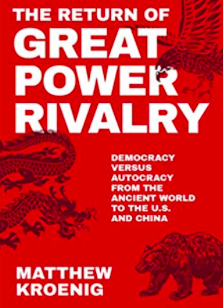
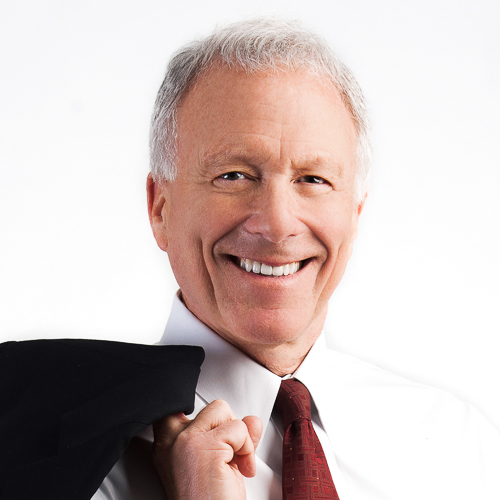
Lewis Libby is Senior Vice President of Hudson Institute. Before joining Hudson, Libby held several high level positions in the federal government related to his current work on national security and homeland security affairs.

War & Foreign Affairs
Lewis Libby is Senior Vice President of Hudson Institute. Before joining Hudson, Libby held several high level positions in the federal government related to his current work on national security and homeland security affairs. This included roughly a dozen years working in the White House, the U.S. Department of Defense, and the U.S. Department of State.
From 2001 to 2005, Libby served as Chief of Staff to Vice President Richard B. Cheney, Assistant to the Vice President for National Security Affairs, and Assistant to the President. In these roles he attended nearly all National Security Council and Homeland Security Council meetings and participated in numerous high level meetings, at home and abroad, with foreign government and U.S. officials. From 1998-99, Libby served as the Legal Advisor to the U.S. House of Representatives’ Select Committee on U.S. National Security and Military/Commercial Concerns with the Peoples’ Republic of China, commonly known as the “Cox Committee.” From 1989 to 1993, during the George H. W. Bush administration, Libby served in the United States Department of Defense as Principal Deputy Under Secretary (Strategy and Resources), and later was confirmed by the U.S. Senate as Deputy Under Secretary of Defense for Policy.
Prior to joining the George W. Bush administration, Libby served as the managing partner of the Washington office of the international law firm Dechert. He was a member of the firm’s litigation department and chaired the Washington office’s Public Policy Practice Group. He also served as the Managing Partner of the Washington Office of the law firm, Mudge, Rose, Guthrie, Alexander & Ferdon.
In 1993, Libby was awarded the Department of Defense Distinguished Service Award and the Department of the Navy Distinguished Public Service Award. He received the Department of State’s Foreign Affairs Award for Public Service in 1985.
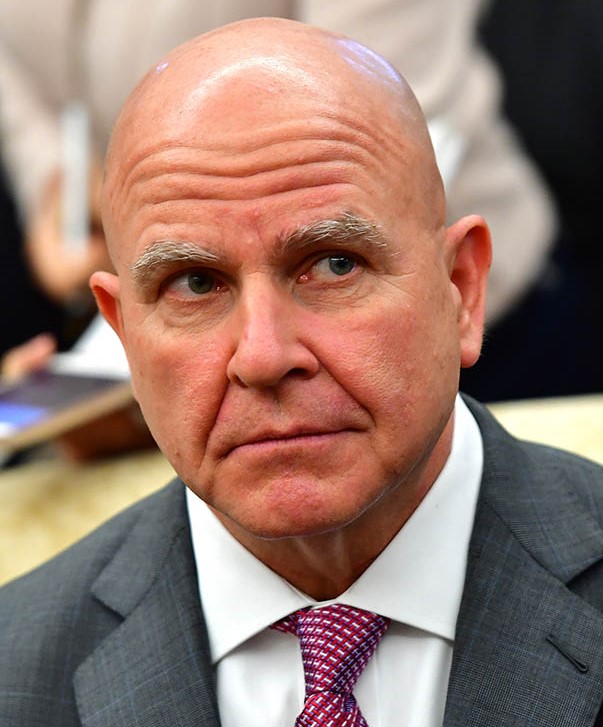
H. R. McMaster is the Fouad and Michelle Ajami Senior Fellow at the Hoover Institution, Stanford University. Previously, he served as the 26th assistant to the president for National Security Affairs and as a commissioned officer in the United States Army for 34 years before retiring as a Lieutenant General. He is author of Battlegrounds: The Fight to Defend the Free World.

War & Foreign Affairs
H. R. McMaster is the Fouad and Michelle Ajami Senior Fellow at the Hoover Institution, Stanford University. He is also the Bernard and Susan Liautaud Fellow at the Freeman Spogli Institute and lecturer at Stanford University’s Graduate School of Business. He was the 26th assistant to the president for National Security Affairs. Upon graduation from the United States Military Academy in 1984, McMaster served as a commissioned officer in the United States Army for 34 years before retiring as a Lieutenant General in June 2018.
From 2014 to 2017 McMaster designed the future army as the director of the Army Capabilities Integration Center and the deputy commanding general of the US Army Training and Doctrine Command (TRADOC). As commanding general of the Maneuver Center of Excellence at Fort Benning, he oversaw all training and education for the army’s infantry, armor, and cavalry force. His has extensive experience leading soldiers and organizations in wartime including Commander, Combined Joint Inter-Agency Task Force—Shafafiyat in Kabul, Afghanistan from 2010 to 2012; Commander, 3rd Armored Cavalry Regiment in Iraq from 2005 to 2006; and Commander, Eagle Troop, 2nd Armored Cavalry Regiment in Operation Desert Storm from 1990 to 1991. McMaster also served overseas as advisor to the most senior commanders in the Middle East, Iraq, and Afghanistan.
McMaster holds a PhD in military history from the University of North Carolina at Chapel Hill. He was an assistant professor of history at the United States Military Academy from 1994 to 1996. He is author of Battlegrounds: The Fight to Defend the Free World and the award-winning Dereliction of Duty: Lyndon Johnson, Robert McNamara, the Joint Chiefs of Staff and the Lies that Led to Vietnam. He was a contributing editor for Survival: Global Politics and Strategy from 2010 to 2017. His many essays, articles, and book reviews on leadership, history, and the future of warfare have appeared in The Atlantic, Foreign Affairs, Survival, the Wall Street Journal, and the New York Times.
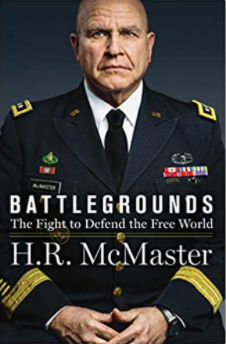

Vance Serchuk is Executive Director of the KKR Global Institute and an Adjunct Senior Fellow at the Center for a New American Security. Prior to joining KKR, Mr. Serchuk served for six years as the senior national security advisor to Senator Joseph Lieberman (I-Connecticut).

War & Foreign Affairs
Vance Serchuk is Executive Director of the KKR Global Institute and an Adjunct Senior Fellow at the Center for a New American Security.
Prior to joining KKR, Mr. Serchuk served for six years as the senior national security advisor to Senator Joseph Lieberman (I-Connecticut). In this capacity, he worked on a broad range of international issues, including comprehensive sanctions legislation, the U.S. rebalance to the Asia-Pacific, and the U.S. response to the Arab Spring, traveling to over 60 countries in Asia, Latin America, Africa, and the Middle East.
From January to July 2013, he was a Council on Foreign Relations-Hitachi International Affairs Fellow, based in Japan, and a regular columnist for the Washington Post. His writings have also appeared in the New York Times, Wall Street Journal, and Los Angeles Times.
Mr. Serchuk is a summa cum laude graduate of Princeton University, holds a J.D. from Yale Law School, and was a Fulbright scholar in the Russian Federation.
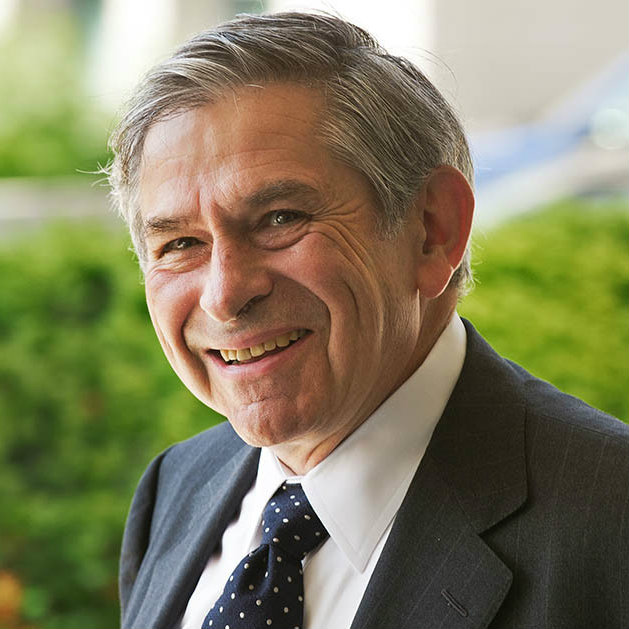
Paul Wolfowitz is a scholar at the American Enterprise Institute. He spent more than three decades in public service and higher education. Most recently, he served as president of the World Bank and deputy secretary of defense.

War & Foreign Affairs
Paul Wolfowitz is a visiting scholar at the American Enterprise Institute where he works on development and national security issues.
Before joining AEI, Mr. Wolfowitz spent more than three decades in public service and higher education, working in the administrations of seven different presidents. Most recently, he served as president of the World Bank and deputy secretary of defense. At the World Bank he focused on the problem of corruption and the challenges of sub-Saharan Africa. As ambassador to Indonesia and assistant secretary of state for East Asia in the Reagan administration, Mr. Wolfowitz was an advocate of reform and political openness. He was involved in Persian Gulf security for almost 30 years during three different tours at the Department of Defense.
Mr. Wolfowitz has a Ph.D. in political science from the University of Chicago and a B.A. in mathematics from Cornell University.
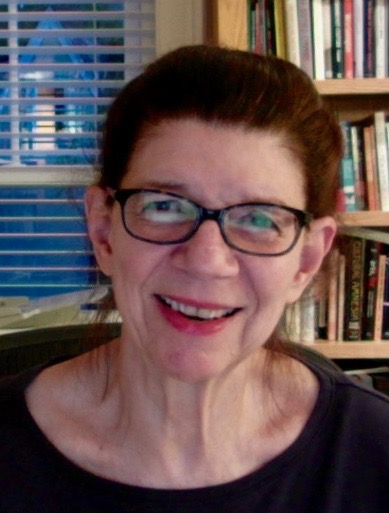
Martha Bayles is an Associate Professor of Humanities at Boston College, where she teaches a year-long course titled, “From Homer to Dante” and various senior seminars. Her research centers around popular culture and cultural history. She has previously served as a lecturer at Harvard University and Claremont McKenna College.

Economics & Domestic Policy
Martha Bayles is an Associate Professor of Humanities at Boston College, where she teaches a year-long course titled, “From Homer to Dante” and various senior seminars. Her research centers around popular culture and cultural history. She has previously served as a lecturer at Harvard University and Claremont McKenna College.
Ms. Bayles has published essays and reviews in The New York Times, Newsweek, The New Republic, The Claremont Review of Books & The Weekly Standard. She is the author of several books, including Hole in our Soul: Loss of Beauty and Meaning in American Popular Music, Ain’t That a Shame? Censorship and the Culture of Transgression, and most recently, Through a Screen Darkly: Popular Culture, Public Diplomacy, and America’s Image Abroad. Ms. Bayles received her Bachelor’s degree from Harvard University and her Master’s degree from the University of Pennsylvania.
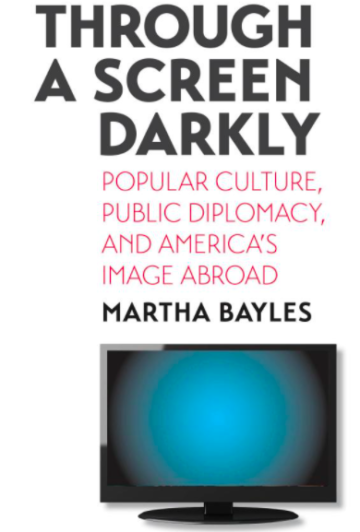
Martha Bayles
View More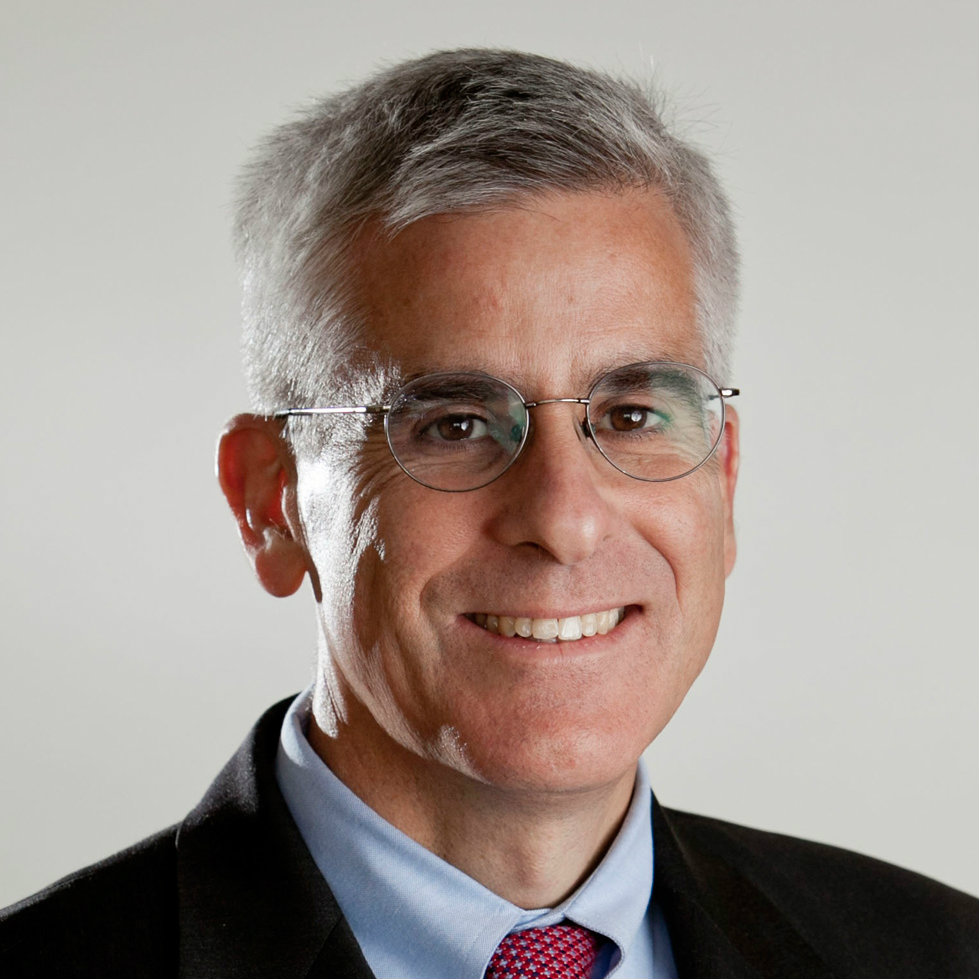
James C. Capretta is a Resident Fellow and holds the Milton Friedman Chair at the American Enterprise Institute, where he studies health care, entitlement, and US budgetary policy, as well as global trends in aging, health, and retirement programs. Mr. Capretta spent more than 16 years in public service.

Economics & Domestic Policy
James C. Capretta is a Resident Fellow and holds the Milton Friedman Chair at the American Enterprise Institute, where he studies health care, entitlement, and US budgetary policy, as well as global trends in aging, health, and retirement programs. In 2015 and 2016, he directed two major studies: one on reforming US health care according to market principles and consumer choice, and the second on reforming major federal entitlement programs to promote greater personal responsibility, focus limited resources on those most in need, and lower long-term federal expenditures.
Mr. Capretta spent more than 16 years in public service before joining AEI. As an associate director at the White House’s Office of Management and Budget from 2001 to 2004, he was responsible for all health care, Social Security, welfare, and labor and education issues. Earlier, he served as a senior health policy analyst at the US Senate Budget Committee and at the US House Committee on Ways and Means. Mr. Capretta was also a fellow, later a senior fellow, at the Ethics and Public Policy Center.
Mr. Capretta’s essays and reports include “Improving Health and Health Care: An Agenda for Reform” (AEI, 2015); “The Budget Act at Forty: Time for Budget Process Reform” (Mercatus Center, 2015); and “Increasing the Effectiveness and Sustainability of the Nation’s Entitlement Programs” (AEI, 2016). His book chapters include “Health-Care Reform to Lower Costs and Improve Access and Quality” in Room to Grow: Conservative Reforms for a Limited Government and a Thriving Middle Class (YG Network, 2014); and “Reforming Medicaid” in The Economics of Medicaid: Assessing the Costs and Consequences (Mercatus Center, 2014).
He has been widely published in newspapers, magazines, and trade journals, including Health Affairs (where he is a member of the Editorial Board), The JAMA Forum, National Review, The Wall Street Journal, and The Weekly Standard.
Mr. Capretta has an M.A. in public policy studies from Duke University and a B.A. in government from the University of Notre Dame.
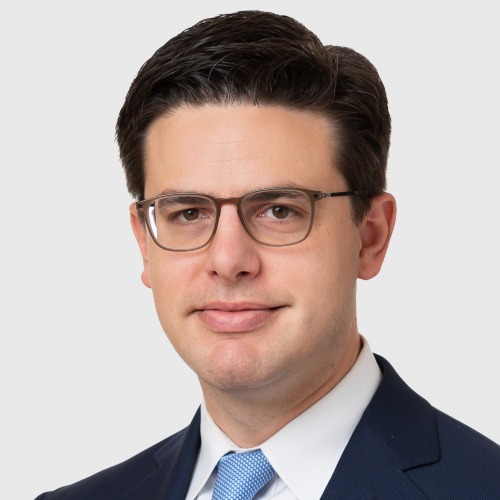
Matthew Continetti is resident fellow at the American Enterprise Institute, Prior to joining AEI, he was Editor in Chief of the Washington Free Beacon. His articles and reviews have appeared in The New York Times, The Wall Street Journal, and The Washington Post.

Economics & Domestic Policy
Matthew Continetti is resident fellow at the American Enterprise Institute, where he focuses on American political thought and history, with a particular focus on the development of the Republican Party and the American conservative movement in the 20th century. He is the founding editor The Washington Free Beacon and was Editor in Chief until 2019. Prior to joining the Beacon, he was Opinion Editor of The Weekly Standard, where he remained a Contributing Editor until 2018.
The author of The K Street Gang: The Rise and Fall of the Republican Machine (Doubleday, 2006), Continetti’s articles and reviews have appeared in The New York Times, The Wall Street Journal, Financial Times, Los Angeles Times, and The Washington Post.
A 2003 graduate of Columbia University, where he majored in history, Continetti lives in McLean, Virginia.
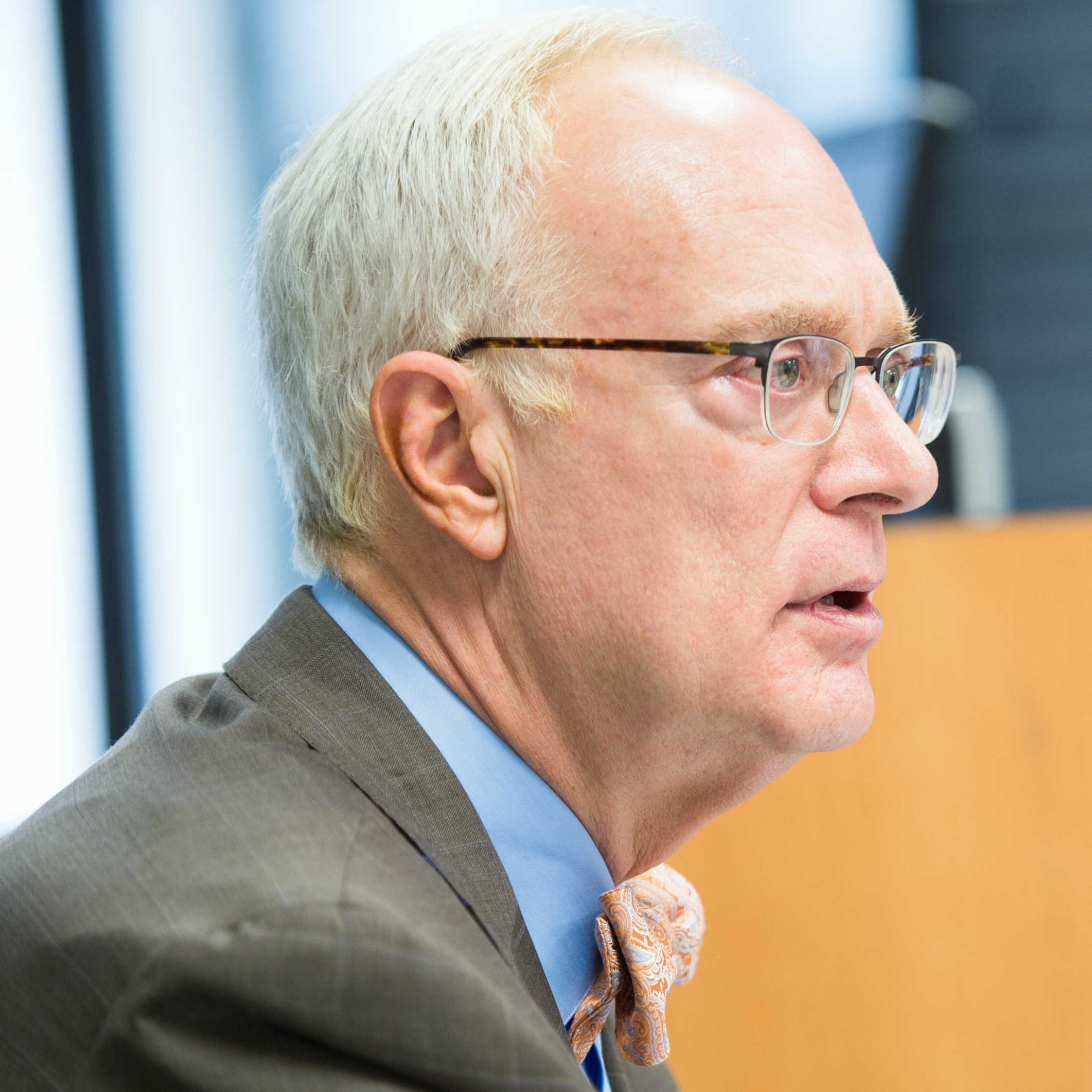
Christopher DeMuth is a Distinguished Fellow at the Hudson Institute in Washington, D.C. He was President of the American Enterprise Institute for Public Policy Research from 1986–2008 and D.C. Searle Senior Fellow at AEI from 2008–2011.

Economics & Domestic Policy
Christopher DeMuth is a Distinguished Fellow at the Hudson Institute in Washington, D.C. He was President of the American Enterprise Institute for Public Policy Research from 1986–2008 and D.C. Searle Senior Fellow at AEI from 2008–2011.
A graduate of The Lawrenceville School, Harvard College, and the University of Chicago Law School, Mr. DeMuth was staff assistant to President Richard Nixon in 1969–1970, working on urban and environmental policy, and, during President Ronald Reagan’s first term, was administrator for information and regulatory affairs in the Office of Management and Budget and executive director of the Presidential Task Force on Regulatory Relief. From 1976–1980, he taught at the Harvard Kennedy School of Government and directed the Harvard Faculty Project on Regulation. He has also practiced law (with Sidley & Austin in Chicago and at the Consolidated Rail Corporation in Philadelphia) and been an economic consultant (with Lexecon, Inc.), and was for a time publisher and editor-in-chief of Regulation magazine (now published by the Cato Institute). He is currently a director of State Farm Mutual Automobile Insurance Company and of several nonprofit organizations.
DeMuth was raised in Kenilworth, Illinois, and lives in McLean, Virginia. He and his wife, Susan DeMuth, MD, have three grown children and seven grandchildren. His writings are posted at www.ccdemuth.com.
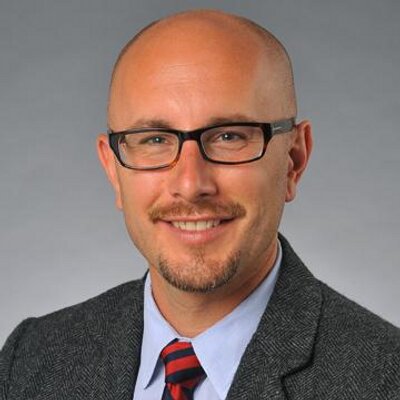
Daniel DiSalvo is a Senior Fellow at the Manhattan Institute’s Center for State and Local Leadership and an Assistant Professor of Political Science at The City College of New York-CUNY. His scholarship focuses on American political parties, elections, labor unions, state government, and public policy.

Economics & Domestic Policy
Daniel DiSalvo is a Senior Fellow at the Manhattan Institute’s Center for State and Local Leadership and an Assistant Professor of Political Science at The City College of New York-CUNY.
His scholarship focuses on American political parties, elections, labor unions, state government, and public policy. He is the author of Government Against Itself: Public Union Power and Its Consequences (Oxford University Press, 2015) and Engines of Change: Party Factions in American Politics, 1868-2010 (Oxford University Press, 2012).
DiSalvo writes frequently for scholarly and popular publications, including National Affairs, City Journal, American Interest, Commentary, The Weekly Standard, Los Angeles Times, New York Daily News, and New York Post. He is coeditor of The Forum: A Journal of Applied Research in Contemporary Politics.
DiSalvo holds a Ph.D. in politics from the University of Virginia.
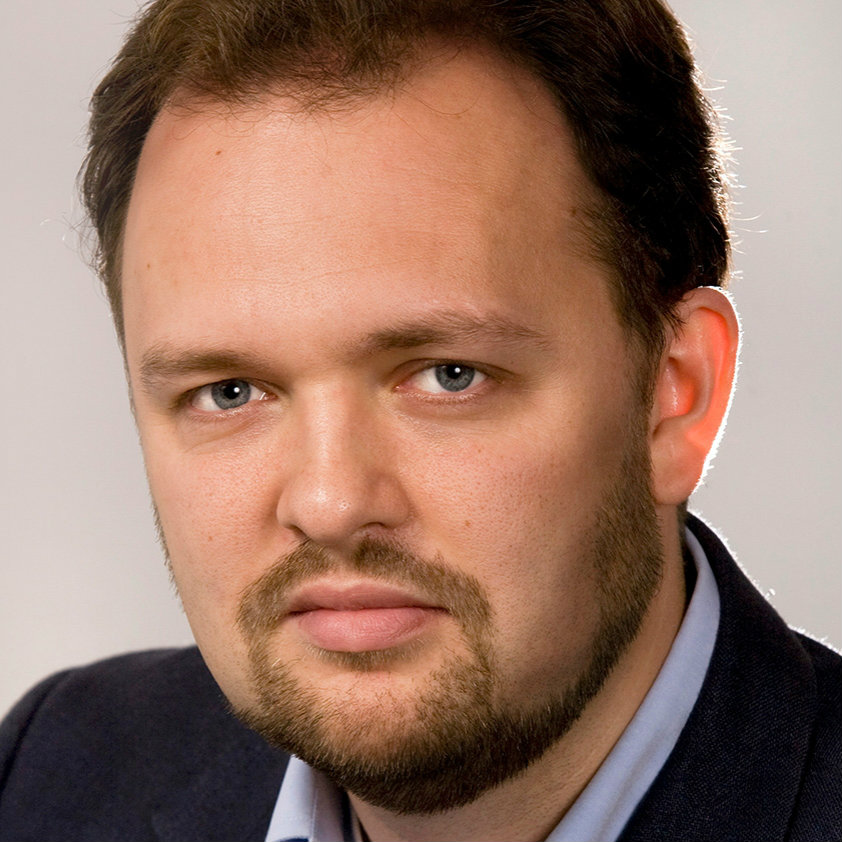
Ross Douthat is the youngest Op-Ed Columnist in the history of The New York Times. Previously, he was a senior editor at The Atlantic and a blogger for theatlantic.com. He is the film critic for National Review.

Economics & Domestic Policy
Ross Douthat is the youngest Op-Ed Columnist in the history of The New York Times. Representing a new generation of conservative commentator, Douthat enlivens the editorial pages of the Times with his vigorous and penetrating analysis of domestic and international politics and government.
He is the author of To Change the Church: Pope Francis and the Future of Catholicism (2018), Bad Religion: How We Became a Nation of Heretics (2012), and Privilege: Harvard and the Education of the Ruling Class (2005), and a co-author, with Reihan Salam, of Grand New Party: How Republicans Can Win the Working Class and Save the American Dream (2008).
Previously, he was a senior editor at The Atlantic and a blogger for theatlantic.com. He is the film critic for National Review, and he has appeared regularly on television, including Charlie Rose, PBS Newshour, and Real Time with Bill Maher.
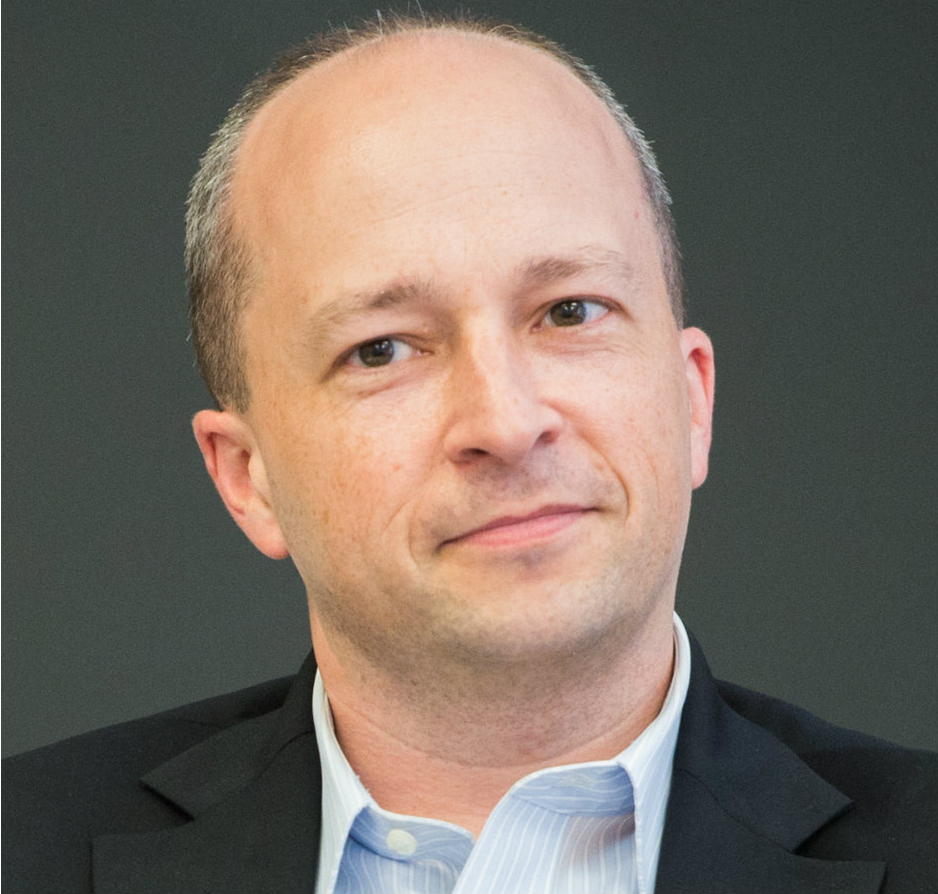
Yuval Levin is a Resident Scholar and Director of Social, Cultural, and Constitutional Studies at the American Enterprise Institute and the Editor of National Affairs magazine. Mr. Levin served on the White House domestic policy staff under President George W. Bush.

Economics & Domestic Policy
Yuval Levin is a Resident Scholar and Director of Social, Cultural, and Constitutional Studies at the American Enterprise Institute (AEI) and the founding Editor of National Affairs magazine. Prior to joining AEI, he was Vice President of the Ethics and Public Policy Center and EPPC’s Hertog Fellow.
He is a Contributing Editor of National Review and The Weekly Standard and a Senior Editor of EPPC’s journal The New Atlantis. Author and editor of numerous books, including The Great Debate: Edmund Burke, Thomas Paine, and the Birth of Right and Left (2013), The Fractured Republic: Renewing America’s Social Contract in the Age of Individualism (2016), and he most recently published A Time to Build: From Family and Community to Congress and the Campus, How Recommitting to Our Institutions Can Revive the American Dream (2020). His essays and articles have appeared in numerous publications including The New York Times, The Washington Post, The Wall Street Journal, Commentary, and others.
Before joining EPPC, Mr. Levin served on the White House domestic policy staff under President George W. Bush. He has also been Executive Director of the President’s Council on Bioethics and a congressional staffer. He holds a B.A. from American University and a Ph.D. from the University of Chicago. He is a recipient of a 2013 Bradley Prize for intellectual achievement.
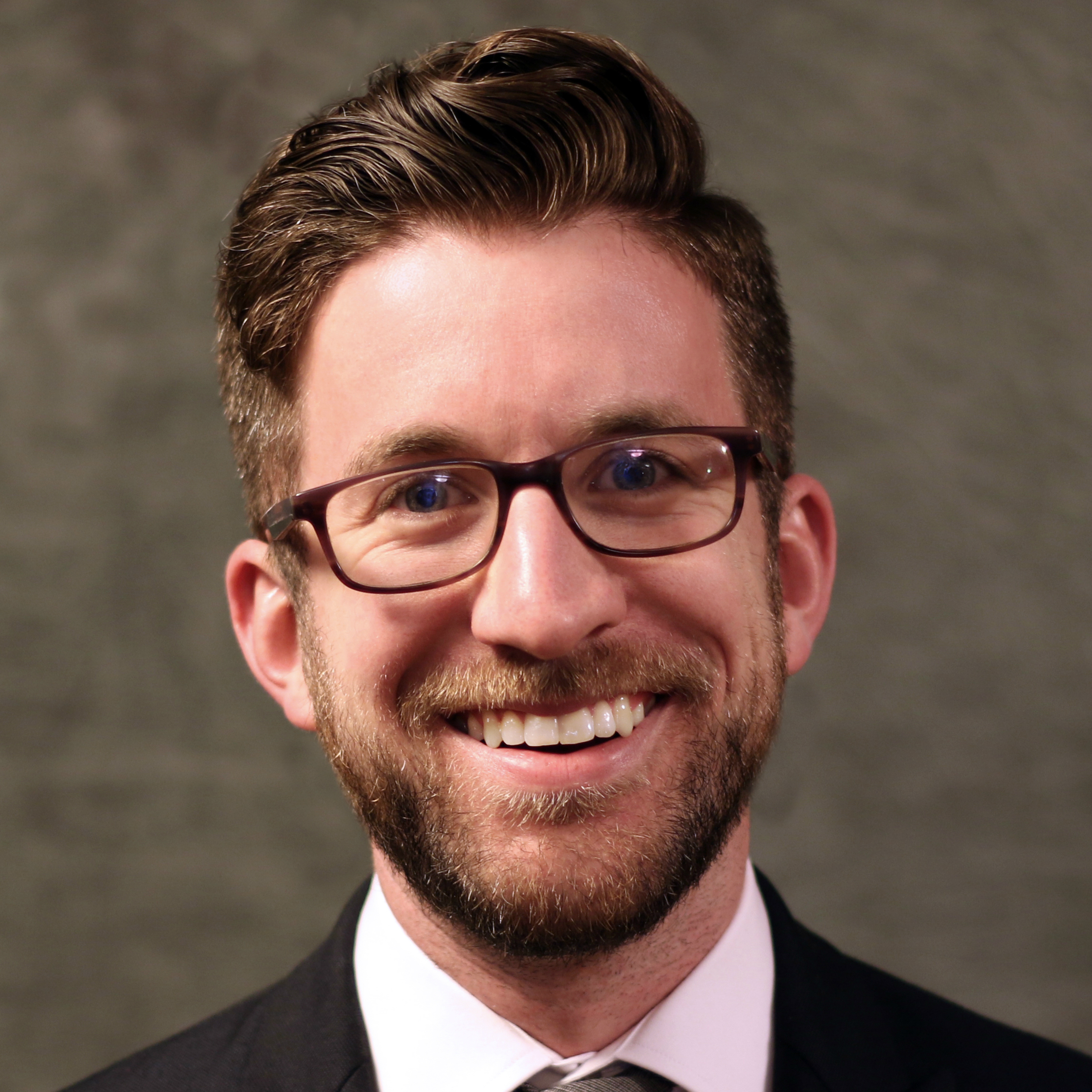
Michael Q. McShane is the Director of National Research at EdChoice, where he studies and writes about K–12 education policy, including private and religious schools and the politics of education. He was previously a high school teacher.

Economics & Domestic Policy
Michael Q. McShane is the Director of National Research at EdChoice, where he studies and writes about K–12 education policy, including private and religious schools and the politics of education. He was previously a high school teacher.
McShane’s analyses and commentary have been published widely in the media, including in the Huffington Post, National Affairs, USA Today, and The Washington Post. In addition to authoring numerous white papers, McShane’s academic work has been published in Education Finance and Policy and the Journal of School Choice.
He is the editor of New and Better Schools (Rowman and Littlefield, 2015), the author of Education and Opportunity (AEI Press, 2014), and coeditor of Teacher Quality 2.0 (Harvard Education Press, 2014) and Common Core Meets Education Reform (Teachers College Press, 2013).
McShane earned a Ph.D. in education policy from the University of Arkansas, an M.Ed. from the University of Notre Dame, and a B.A. in English from St. Louis University.
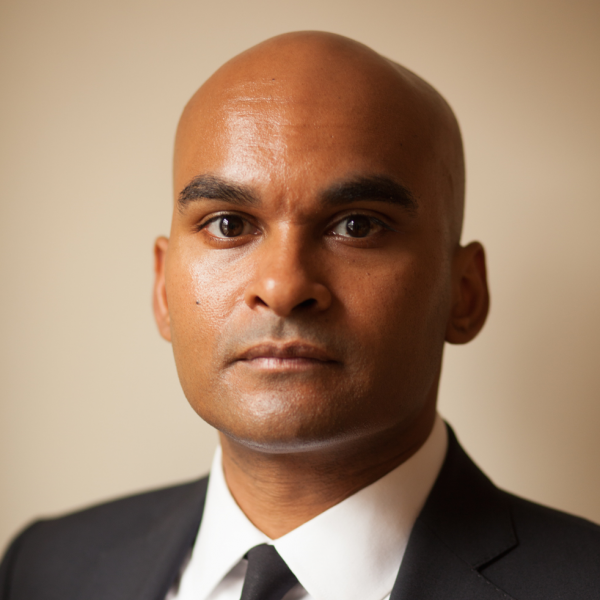
Reihan Salam is President of the Manhattan Institute. A second-generation American, he is the author, most recently, of Melting Pot or Civil War? (Sentinel, 2018) and, before that, the co-author, with Ross Douthat, of Grand New Party (Doubleday, 2008).

Economics & Domestic Policy
Reihan Salam is President of the Manhattan Institute. Mr. Salam is the Institute’s fifth president in its 42-year history.
From 2014 to 2019, he served as the executive editor of National Review. He is also a National Review Institute Policy Fellow, a contributing editor at The Atlantic and National Affairs, and, in 2017, was named a Young Global Leader of the World Economic Forum. A second-generation American, he is the author, most recently, of Melting Pot or Civil War? (Sentinel, 2018) and, before that, the co-author, with Ross Douthat, of Grand New Party (Doubleday, 2008).
Early in his career, Mr. Salam was an editorial researcher for David Brooks at The New York Times and a producer at NBC News, before becoming associate editor of The Atlantic. His writing has appeared in publications such as Slate, the Wall Street Journal, the Financial Times, the Washington Post, the Times of London, and The Spectator—and he has appeared as an analyst on a number of radio and television programs, including All Things Considered, Face the Nation, and This Week.
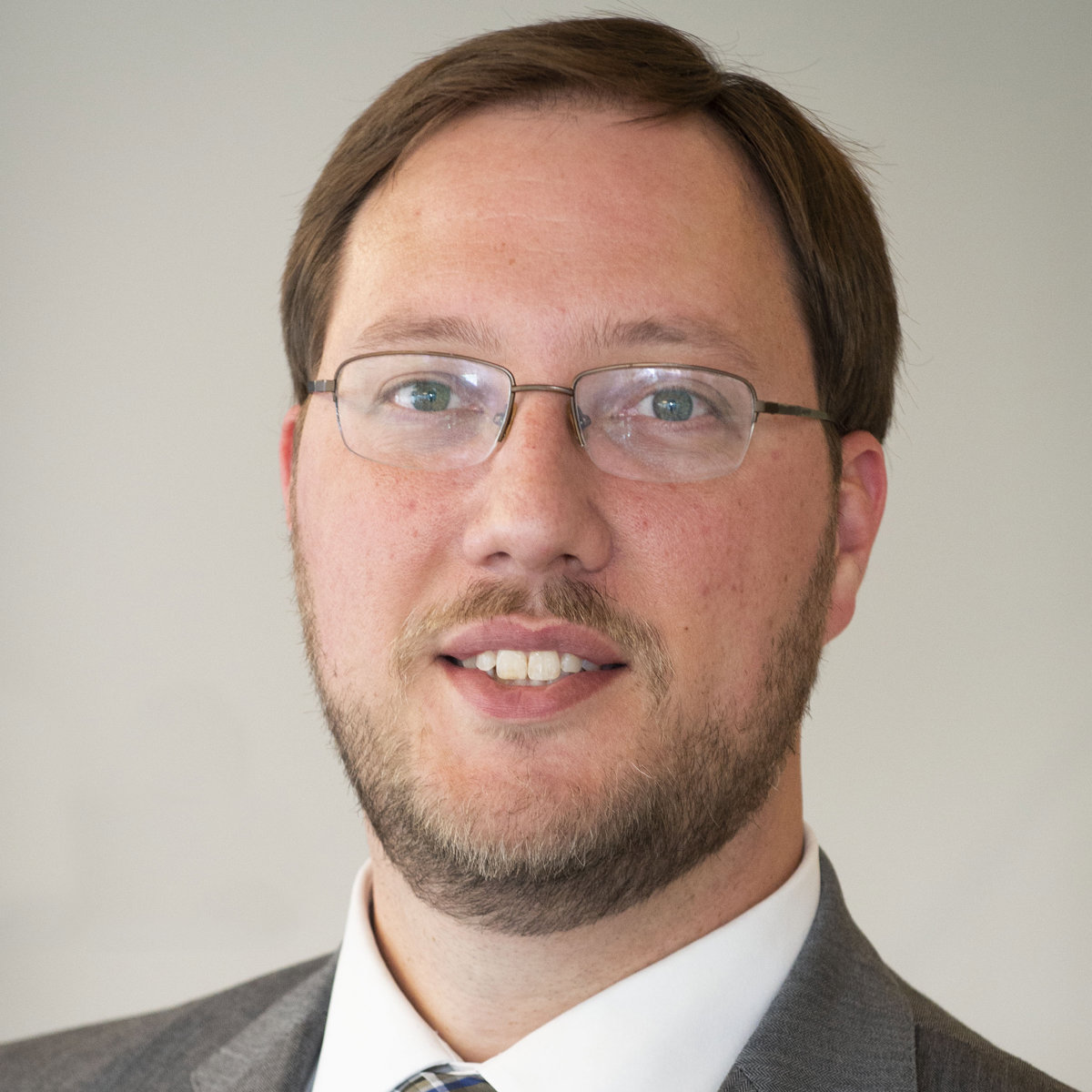
Adam J. White is a Resident Scholar at the American Enterprise Institute, and an Assistant Professor at George Mason University’s Antonin Scalia Law School, where he also directs the Gray Center for the Study of the Administrative State at George Mason University’s Antonin Scalia Law School.

Economics & Domestic Policy
Adam J. White is a Resident Scholar at the American Enterprise Institute, and an Assistant Professor at George Mason University’s Antonin Scalia Law School, where he also directs the Gray Center for the Study of the Administrative State at George Mason University’s Antonin Scalia Law School. He writes widely on the administrative state, the Supreme Court, the Constitution, and regulatory policy, with special focus on energy policy and financial regulation.
He is a Contributing Editor with National Affairs, The New Atlantis, and City Journal, and a contributor to the Yale Journal on Regulation‘s blog, “Notice and Comment.” He was recently appointed to the Administrative Conference of the United States, a federal advisory board focused on improving federal agencies’ practices. He also serves on the leadership council of the American Bar Association’s Administrative Law Section; on the executive committee of the Federalist Society’s Administrative Law Practice Group; and on the board of directors of LandCAN, a nonprofit organization dedicated to promoting conservation on working lands.
Prior to joining AEI, he was a Research Fellow at the Hoover Institution and an Adjunct Fellow at the Manhattan Institute. In addition to his research and writing, he practiced law with Boyden Gray & Associates, writing briefs on constitutional and regulatory issues in the Supreme Court and various other federal courts. (He continues to be “of counsel” to the firm in three pending cases involving the Consumer Financial Protection Bureau and the Federal Communications Commission.) Previously, he was a Senior Associate with Baker Botts, working on various constitutional and regulatory matters, including energy infrastructure regulation.
He received his J.D. (cum laude) from Harvard Law School, and his B.B.A. (economics) from the University of Iowa College of Business. He clerked for Judge David B. Sentelle of the U.S. Court of Appeals for the D.C. Circuit.
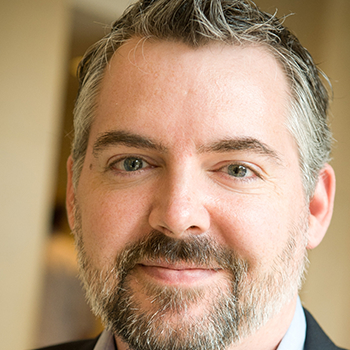
Scott Winship is Project Director for the U.S. Congress Joint Economic Committee. Previously a Visiting Fellow at the Foundation for Research on Equal Opportunity, his areas of expertise include living standards and economic mobility, inequality, and insecurity.

Economics & Domestic Policy
Scott Winship is Project Director for the U.S. Congress Joint Economic Committee. His areas of expertise include living standards and economic mobility, inequality, and insecurity.
Previously, Winship was the Walter B. Wriston Fellow at the Manhattan Institute, a Visiting Fellow at the Foundation for Research on Equal Opportunity, and a fellow at the Brookings Institution. He is a contributor to Forbes.com, and his research has been published in City Journal, National Affairs, National Review, POLITICO, Wilson Quarterly, and Breakthrough Journal, among other outlets. Recently, Winship contributed a chapter to the reform-conservative volume Room to Grow (2014). He has testified before Congress on the topics of inequality, poverty, and opportunity. Earlier in his career, Winship was research manager of the Economic Mobility Project of The Pew Charitable Trusts and a senior policy adviser at Third Way.
Winship received a B.A. in Sociology and Urban Studies from Northwestern University in 1995, and an M.A. in Sociology and Ph.D. in Social Policy from Harvard University in 2005 and 2009 respectively where he was a fellow in the Multidisciplinary Program on Inequality and Social Policy and a National Science Foundation Graduate Research Fellow.